You are using an outdated browser. Please upgrade your browser or activate Google Chrome Frame to improve your experience.

90 English Tourism Vocabulary Words and Phrases [With Sample Dialogues]
English is the most common language used in the international tourism industry.
People who work in the tourism industry use it to communicate with tourists from all over the world.
If you work in tourism or hope to find a job in the industry, it helps to know the right words and phrases for this type of work.
Interacting with Customers
Greeting customers, asking customers questions , responding to questions, checking for understanding, common scenarios in tourism english, giving recommendations, giving directions , making friendly small talk, jobs in hospitality and tourism, jobs at hotels and resorts, bar and restaurant staff, jobs at travel and tourism companies, more tourism vocabulary in english, how to learn english tourism vocabulary, and one more thing....
Download: This blog post is available as a convenient and portable PDF that you can take anywhere. Click here to get a copy. (Download)

You always want to welcome customers or guests with a friendly, professional greeting :
- Good morning (before 12 p.m.)
- Good afternoon (between 12 p.m. and 5 p.m.)
- Good evening (after 5 p.m.)
- Welcome to… [company name] . My name is… [your name] .
Be sure to always use a respectful term to refer to your customers:
- Miss — Young women (under age 30)
- Ma’am — Mature women (over age 30)
- Sir — Men of all ages
For example, using these terms you can now greet customers in a very respectful way:
- Good morning, miss .
- Good afternoon, sir .
If you are working at a hotel, restaurant or tour agency, you can greet a customer and then ask them this question:
Do you have a reservation with us?
To answer the phone, you only need one simple phrase:
Hello, you’ve reached [company name]. This is [your name]. How may I help you?
If you are working with customers in a hotel, before they go to their rooms you can say one of these phrases:
- We hope you enjoy your stay!
- Please let us know if you have any questions or comments during your stay.
You will want to make sure your customers are safe and happy while they are with you. You can do this by asking friendly and polite questions, such as:
- How are you doing this morning? (or afternoon/evening)
- Have you been having a good time?
- Is there anything else we can do to make your experience more enjoyable?
Customers will have many questions, and sometimes you will not know the answer. You may need to ask a coworker or supervisor. When this happens, you can use the following phrases:
- I will get that information for you right away.
- That’s a great question! I will check with my supervisor and let you know.
As a guide, host or receptionist, you will need to double-check for understanding. These phrases are simple and quick ways to make sure you have understood the guest or customer:
- I heard you ask (about flights) . Is that correct?
- So, you said (you wanted to visit the ruins) , right?
- Okay, I understand that (your flight leaves at 3 PM) . Is that correct?
To ask for clarification
Your guest may use vocabulary that you are unfamiliar with. Likewise, they might have an accent that is difficult for you to understand. Here are some polite ways to ask them to repeat or clarify what they said:
- I’m sorry, I didn’t quite understand that. Can you say that again?
- Pardon my English, but I didn’t understand that. Can you say that again?
- I’m sorry, I didn’t catch that. Can you describe what you mean?
To invite your guests to ask questions
You can make all of your guests feel welcome by encouraging them to ask questions:
- Does anyone have any questions?
- Yes, sir? / Yes, ma’am? Do you have a question?
- Please feel free to raise your hand any time if you have a question.
- So, any questions?
FluentU takes authentic videos—like music videos, movie trailers, news and inspiring talks—and turns them into personalized language learning lessons.
You can try FluentU for free for 2 weeks. Check out the website or download the iOS app or Android app.
P.S. Click here to take advantage of our current sale! (Expires at the end of this month.)

Try FluentU for FREE!

When working in tourism, you might need to give directions to tourists, share recommendations for a good restaurant or attraction or make friendly conversation.
In these scenarios, you will play the part of the “guide,” but it could be any job where you interact with tourists. Practice these dialogues so you feel confident using these words and phrases in your interactions.
- For (authentic cuisine, family activities, etc.), I recommend…
- My favorite place is…
- Personally, I suggest…
Tourist: Excuse me, do you know a good place for ice cream?
Guide: Oh, yes. For really good ice cream, I recommend Maria’s. It’s located about six blocks from here, and it’s my favorite place. Personally, I suggest the chocolate cherry flavor. I think your family will like it.
Tourist: Great, thanks!
If you work in tourism, you will need to give directions to visitors. Here are some key phrases you might use to explain how to get somewhere:
- Go straight
- Stop at the…
- Continue until…
- Take the subway (or bus, train, etc.)
- Follow the signs for…
- At the traffic light
- At the next street (or light, block, etc.)
- In five blocks
- Near the hotel (or beach, station, etc.)
- On the main plaza
See this post for more words and phrases for giving directions:
Asking for and giving directions in English is a helpful skill, and this guide will show you the important vocabulary you need to know, with audio pronunciation included!…
Tourist: Can you tell me how to get to the theater?
Guide: Sure! The theater is near the train station. You need to go straight down this street for one block. At the next street, turn left. Continue until you see a sign for the theater, in about five blocks. If you’re lost, you can follow the signs for the train station. Does that make sense?
Tourist: Yes, thank you!
Here’s a helpful video to practice basic phrases for giving directions:
Here are some phrases that you can use when you want to make friendly conversation with a guest or visitor:
- So, are you enjoying your time in (Paris) so far?
- Tell me, what is your favorite part of the city so far?
- What do you think of the (architecture, food, beach, festival, etc.) ?
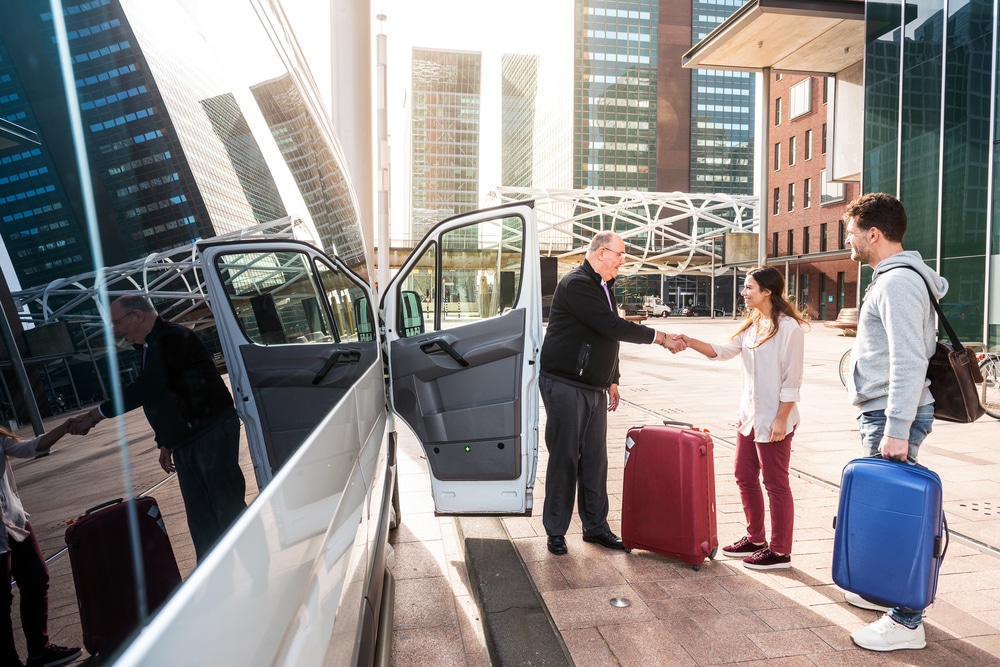
This vocabulary will help you a lot when you are working in the tourism industry or searching for jobs.
- Bellhop / baggage handler — the person who will open the front door for guests and carry their bags to their rooms
- Concierge / receptionist — the person at the front desk who welcomes the guests, gives out room keys, helps guests make reservations and takes payments for reservations
- Maid / housekeeper — the person who cleans the hotel rooms ( see English vocabulary for housekeeping here )
- Janitor — the person responsible for cleaning everything outside of hotel rooms, such as the lobby and other common areas
- Groundskeeper — the person who takes care of all the plants outside the hotel
- Maintenance worker — the person who fixes anything that stops working in the hotel
- Manager / supervisor — the person who makes sure everything goes well at the hotel, hires employees, teaches new employees how to do their jobs and makes sure that guests are happy
- Event planner — the person who makes sure the hotel is ready for big events such as business conventions (meetings) or weddings
Here are a couple of vocabulary guides for working in hotels:
Practicing English for receptionists can help you greet and assist hotel guests with ease. By studying the right phrases, you can prepare yourself to handle common…
Knowing hotel vocabulary in English is essential if you want to work in the hospitality industry. Check out our list of 100+ vocabulary words and phrases on everything…
These jobs might exist at a hotel if it has a bar and/or restaurant.
- Bartender — the person who makes and serves drinks at the bar
- Host / hostess — the person who stands at the entrance to the restaurant and welcomes guests, brings them to a table and takes reservations on the phone and in person
- Server / waiter / waitress — the person who serves customers who are eating at the restaurant (“waiter” refers to a male, “waitress” refers to a female and “server” can refer to any gender)
- Busboy / busser — the person who makes sure that tables are clean and ready for customers
- Chef / cook — the person who prepares food at the restaurant
If you work or want to work in a bar or restaurant, check out this vocabulary guide next:
Click here to learn English for restaurant staff! Here, we have information about six essential restaurant positions, the common phrases used by each one and study…
There are entire companies that exist just to help travelers book their trips. If you work for one of these companies, you will either work in an office or outside the office helping travelers enjoy their time in your city or country.
- Secretary / administrative assistant — someone who takes care of the whole office by organizing paperwork, making and receiving phone calls, organizing the office schedule and taking reservations for tours and trips
- Travel agent — someone who helps people find the most affordable flights, hotels, etc. and helps them buy tickets and make reservations before they travel
- Tour guide — someone who goes out with tourists and takes them on adventures to explore towns, cities, farms, mountains, jungles and more
- Taxi driver / private driver — someone who drives tourists in a taxi or private car between different places, and sometimes on a tour around the area
- Shuttle driver — someone who drives a large vehicle (usually a small bus or large van) to transport groups of people between places, such as from the hotel to some popular tourist destinations or between the hotel and the airport
- Airline agent — someone who works at the desk of an airline (a company that owns airplanes and provides transportation services with them)
- Flight attendant — someone who takes care of passengers on airplanes by serving food and drinks and giving safety instructions ( see English vocabulary for flight attendants here )
- Cruise attendant — someone who takes care of people on boats and ships by doing the same things as flight attendants, providing services like food and drinks and giving safety instructions
- Translator — someone who translates between different languages in writing, such as for tourism guides or flyers
- Interpreter — someone who translates between two languages by listening and speaking, often to help tourists and visitors understand and speak with local people
- Recreational guide — someone who goes with tourists to do activities like yoga, surfing, cycling, running, hiking and climbing mountains
Here is a list of common tourism-related English words. You might be asked questions with these words or you might need to use them yourself. Make sure you’re familiar with them and can use them in full sentences.
- Tourist – someone who travels to different places for enjoyment or to see new things
- Attractions — places of interest that are often visited by tourists, such as museums or amusement parks
- Landmark – a special or famous place that people can easily recognize, often used for giving directions
- Destination – a place to which people travel for leisure, business or other purposes
- Guide – a person who helps tourists by showing them around and giving them information about a place
- Guidebook – a book that provides information for travelers about a particular destination, including attractions, hotels and restaurants
- Souvenir – a small item that people buy to remember a place they visited, like a keychain or a postcard
- Itinerary – a plan or schedule that shows the activities or places someone will visit during their trip
- Accommodation – a place where travelers can stay overnight, such as a hotel, hostel or campground
- Transportation – the way people travel from one place to another, such as by car, bus, train or airplane
- Passport – a document issued by a government that proves a person’s identity and nationality, allowing them to travel internationally
- Visa – a stamp or document given by a country’s government that allows someone to enter or stay in that country for a certain period of time, usually for tourism, work, or study
- Business district — also called the financial district, this is the center of the city where many offices, banks and companies are located
- Entertainment district — a part of a city where there are lots of restaurants, bars, theaters and other fun places
- Dining district — an area within a city with a lot of restaurants
- Custom — a traditional way of doing something that is common in a particular culture or society
- Highlight — the most interesting or exciting part of something, often the main attraction
- Scenery — the natural features of an area, such as mountains, rivers or forests, that people find beautiful to look at
- Surroundings — the area or environment around a particular place, including nearby buildings, landscapes and neighborhoods
- Depart — to leave from a place, especially when traveling
- Arrive — to reach or get to a place or destination, especially when traveling
- Recommend — to suggest or advise someone to do something because you think they will enjoy it
- Read the “English for International Tourism” textbooks. They are available in low-intermediate , intermediate and high-intermediate levels. As long as you have a foundation in English, this series is perfect for learning how to communicate with coworkers and tourists in different tourism-related scenarios. Here are some more English for Tourism books we recommend.
- Take an English for Tourism course. You can find some great courses on Udemy, such as this English for Business and Tourism course aimed at low-intermediate to intermediate students. Or take lessons with a tutor who specializes in tourism on Preply .
- Complete tourism English courses on Memrise. Focus on Memrise English courses for tourism. These lessons feature English vocabulary words and phrases that anyone in the tourism industry would use in their daily activities. Try spending at least 30 minutes a day using Memrise to brush up on your tourism vocabulary—you’ll notice a difference!
- Follow travel vloggers on YouTube. Look for channels or specific videos about the place where you will be working. Engage in discussions in the comments as well! Not only will that make using YouTube more fun , but it will also require you to learn and use new words during your chats back and forth with others.
- Participate in discussions on travel forums. Travel forums allow you to use your new tourism vocabulary with native speakers and practice written English . On TripAdvisor , you can talk with English speakers about traveling, hotels, restaurants, transportation and more. The /r/travel subreddit is a great place to talk about everything related to tourism.
- Give yourself daily homework. A great place to start is the tourism section of ESL Conversation Questions . You’ll find a variety of tourism-related topics that you can discuss with your friends and coworkers. If you’re a hospitality professional, check out Oxford University Press’ free online workbook series, English for Careers .
Bookmark this page so you can come back and view this tourism vocabulary whenever you have some free time.
Soon you will be able to communicate with any tourist who crosses your path!
If you like learning English through movies and online media, you should also check out FluentU. FluentU lets you learn English from popular talk shows, catchy music videos and funny commercials , as you can see here:

If you want to watch it, the FluentU app has probably got it.
The FluentU app and website makes it really easy to watch English videos. There are captions that are interactive. That means you can tap on any word to see an image, definition, and useful examples.

FluentU lets you learn engaging content with world famous celebrities.
For example, when you tap on the word "searching," you see this:

FluentU lets you tap to look up any word.
Learn all the vocabulary in any video with quizzes. Swipe left or right to see more examples for the word you’re learning.

FluentU helps you learn fast with useful questions and multiple examples. Learn more.
The best part? FluentU remembers the vocabulary that you’re learning. It gives you extra practice with difficult words—and reminds you when it’s time to review what you’ve learned. You have a truly personalized experience.
Start using the FluentU website on your computer or tablet or, better yet, download the FluentU app from the iTunes or Google Play store. Click here to take advantage of our current sale! (Expires at the end of this month.)
Enter your e-mail address to get your free PDF!
We hate SPAM and promise to keep your email address safe

- TOEFL Writing Correction Topics
- OET Course & Mock Test
- Writing Correction
- Speaking Mock Test
- Reading Course
- Listening Practice Tests
- FREE Practice Tests
- OET Writing Correction
- OET Reading Course
- OET Speaking Mock Test
- TOEFL Writing Correction
- PTE Writing Correction
- OET Listening Practice Tests
- OET (Occupational English Test)
- PTE (Pearson Test of English)
IELTS Vocabulary – Travel
- Finance & Money
- Communication
- Climate Change
- Social Media
- Entertainment
- Transportation
- Environment
- Crime and Policing
- IELTS Vocab
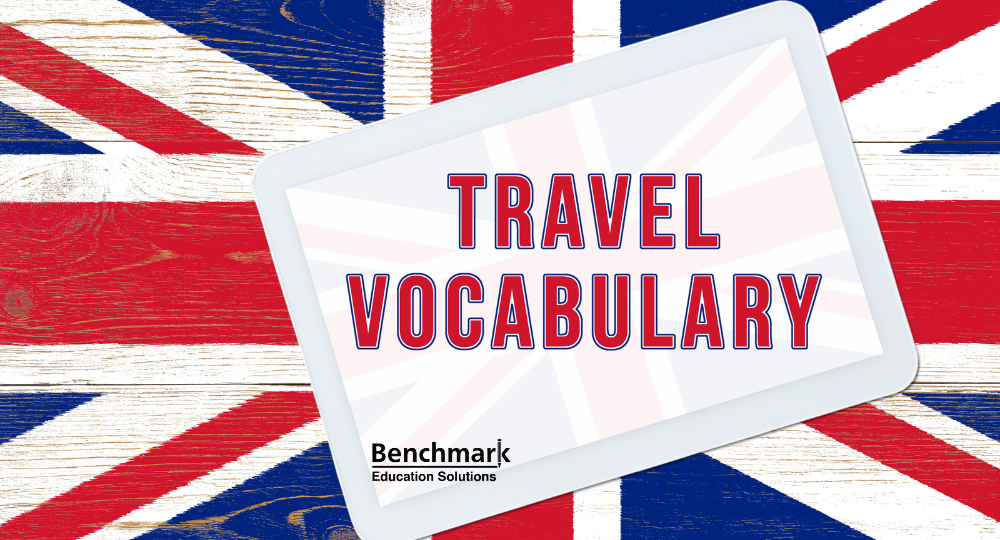
Questions about travel and tourist destinations are extremely common on the IELTS examination. This page contains essential words and phrases that will help you answer questions on the topic of IELTS travel vocabulary. There are exercises for you to IELTS practice with real questions.
Table of Contents
- Travel Vocabulary
- Travel Vocabulary Activity
- Travel Idioms, Phrasal Verbs, and Collocations
- Travel Idioms, Phrasal Verbs, and Collocations Activity
1. Travel Vocabulary
- Attraction – A place that entices visitors because it is interesting
- Backpacking – To travel, often to more than one destination, with your belongings in a backpack
- Camping – A holiday spent in a tent or camper van
- Cruise – A sea-based trip taking a pre-planned route that involves visiting several ports
- Excursion – A short trip usually taken whilst on holiday
- Flights – Journeys that are taken through the air on an aeroplane or helicopter
- Footfall – The number of people who enter an area/shop
- Frugal – To be economical and sparing with money
- Heritage – Objects and characteristics that are valued because of their cultural or historical significance
- Holiday/Vacation – An extended period of recreation/leisure spent away from home
- Homeland – The country you were born/brought up in
- Hostel – Similar to a hotel but cheaper and often caters for young people, travellers, and students rather than the typical tourist
- Hotel – An establishment that provides rooms and food to paying guests
- Itinerary – A detailed plan of a route or journey. It usually includes times, dates, prices etc…
- Luggage – The collective name for the suitcases/bags that you take on a trip
- Luxurious – Of high quality
- Safari – A type of holiday/trip to observe or hunt animals. Most common in Africa.
- Seasonal – Only occurring at certain times of the year
- Scenery – The natural features of a landscape
- Sightseeing – The act of visiting different attractions or sights
- Souvenir – Something you keep as a reminder of a place
- Storey/Floor – A part of a building with all the rooms are on one level
- Suitcase – A case with a handle used for carrying clothes or possessions on a trip
- To travel by… / OR – on a plane/bus/boat/train/bike/the metro – To move from one place to another in a car/taxi
- Traditional/Quaint – Old-fashioned and attractive
- Travel agent/agency – The person who helps reserve you a holiday/The place where you reserve the holiday
- Travel arrangements – The plans/preparations that go into making a trip/journey

2. General Travel Vocabulary Activity
3. travel idioms, phrasal verbs, and collocations.
There are many collocations, idioms and phrasal verbs used to discuss travel and destinations. Using them correctly will make your answers sound completer and more natural. Here are some common words and phrases that you can use in the IELTS examination, followed by exercises for you to practice using the words in context.
- Affordable destinations – Places that are within a person’s financial means. Not expensive/luxury
- Affordable travel – Trips that are within a person’s financial means
- All-inclusive – A trip where all food, drink, and accommodation are provided
- Around the world – A large proportion of the world. Many destinations/continents.
- Bed and breakfast – A type of accommodation that provides a room and breakfast
- Breathtaking view – A view that is extremely beautiful or amazing
- Bucket list – The places you want to visit and things you want to do in your lifetime
- Get around – To move from place to place
- Get away – To go on holiday/vacation/ (n) The holiday/vacation itself
- Guided tour – Part of a trip where tourists are taken from place to place and given information by a guide
- Head for/towards – To go in a certain direction or the direction of a specific place
- Holiday destination – Place where people go on holiday/vacation
- Itchy feet/Wanderlust – The desire to travel
- Long haul/Short-haul destination – A destination far away from your home/ close to your home
- Long haul/Short-haul flight- A flight that takes 6 + hours / A flight that takes -3 hours
- Middle of nowhere – A place that is remote and far from civilisation
- Off the beaten track – Away from where the tourists normally go
- Out of season – The part of the year when it is not very busy
- Package holiday – A holiday where the flight and accommodation, and often food, are included
- Peak season – The busiest time of the year. For example, school holidays and Christmas
- Swarming with tourists – Lots of tourists in a particular place
- Tour guide – The person who leads guided tours to visit attractions and sights
- Tourist trap – A place that attracts and exploits tourists
- Travelling light – To go on a trip with little bags or luggage
- When in Rome (do as the Romans do) – When you go to a place you should follow the customs/rules of the local people
4. Travel Idioms, Phrasal Verbs, and Collocations Activity
For more practice, Visit IELTS vocabulary for Transportation .
Vocab articles short lists
Ielts vocabulary themes.
- Finance and Money
- Science and Technology
Leave a Reply Cancel reply
Your email address will not be published. Required fields are marked *

- ielts writing
- ielts listening
- ielts speaking
- ielts reading
- ielts practice test
- IELTS Sample Reports
- IELTS Sample Essays
- IELTS Sample Letters
- IELTS Vocabulary
- IELTS Scores
- Life Skills Test
- Find a Test Centre
- Alternatives to IELTS
- General Training
- Academic Word List
- Topic Vocabulary
- Collocation
- Phrasal Verbs
- Writing eBooks
- Reading eBook
- All eBooks & Courses
- IELTS Vocabulary
Travel and Tourism Vocabulary for IELTS
This travel and tourism vocabulary for IELTS will help you with any speaking questions that may come up around this topic or essays related to it.
You may know some of the words, but you can see examples of them in context which will help you know how to use them correctly.
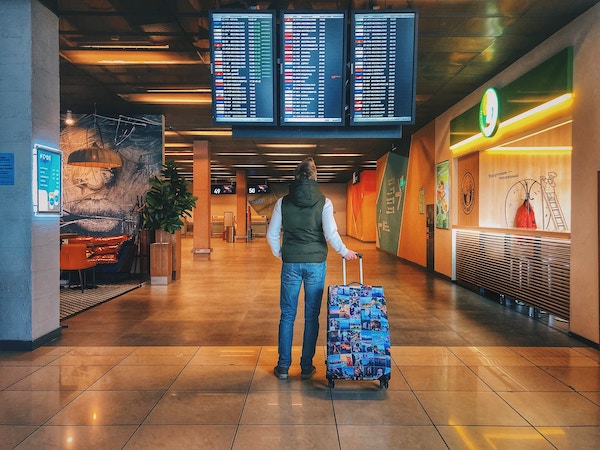
Accommodation
A place to stay overnight or for a period of time.
- "We booked a comfortable accommodation near the beach for our summer vacation."
- "The hotel offers a range of accommodations, from standard rooms to luxurious suites."
An exciting or daring experience, often associated with outdoor activities.
- "He decided to go bungee jumping as he wanted to experience an adrenaline-pumping adventure."
- "We embarked on an exciting adventure by taking a safari tour in the African savannah."
Attractions
Places or things that are interesting or captivating to visit.
- "The city is famous for its numerous attractions, such as museums, parks, and historic landmarks."
- "We visited all the popular tourist attractions in London, including the Tower of London and Buckingham Palace."
Backpacking
A style of travel involving carrying all necessary belongings in a backpack and staying in budget accommodations.
- "She went backpacking through Southeast Asia, staying in hostels and meeting fellow travelers along the way."
- "Backpacking allows you to explore different destinations on a tight budget."
A trip or vacation on a ship, usually involving stops at different ports.
- "My parents are going on a Mediterranean cruise, visiting several countries in the region."
- "We enjoyed a luxurious cruise around the Caribbean, stopping at beautiful tropical islands."
The style of cooking or particular dishes associated with a specific region or culture.
- "I can't wait to try the local cuisine, especially the traditional street food."
- "The restaurant specializes in Italian cuisine, offering a variety of pasta and pizza dishes."
The customs, traditions, arts, and social institutions of a particular group of people.
- "Immersing yourself in the local culture is an important aspect of traveling."
- "We attended a traditional dance performance to experience the local culture."
The money used in a particular country.
- "You should exchange your currency to the local currency before traveling to avoid any inconvenience."
- "The hotel accepts various currencies, including US dollars and Euros."
Destination
A place where people travel to or visit.
- "Paris is a popular tourist destination known for its beautiful architecture and rich history."
- "I am planning my next vacation and cannot decide on a destination yet."
The presence of a wide range of human differences within a group, organisation, or society, encompassing aspects such as race, ethnicity, gender, sexual orientation, socio-economic status, age, religion, ability, and more.
- "One of the most enriching aspects of traveling abroad is experiencing the diversity of cultures firsthand, from sampling traditional foods to participating in local customs and rituals."
- "In bustling cities like London and New York, the diversity of people you encounter while exploring the streets highlights the global interconnectedness of travel, offering a mosaic of languages, traditions, and perspectives."
Responsible travel to natural areas while minimizing the negative impact on the environment and supporting local communities.
- "We participated in an ecotourism program, where we learned about sustainable agriculture practices in the rainforest."
- "Ecotourism has become increasingly popular as travelers seek authentic experiences with minimal environmental impact."
A journey undertaken for a specific purpose, often involving exploration or research.
- "The scientific expedition aims to study the wildlife in the remote rainforest."
- "We joined an expedition to climb the highest peak in the region."
A person who leads or shows the way, providing information and assistance to travelers.
- "The tour guide explained the history and significance of the ancient ruins."
- "We hired a local guide to navigate through the bustling markets."
A book providing information on a specific place, including recommendations for sightseeing and accommodations.
- "I bought a guidebook for New York City to help plan my itinerary and find the best restaurants in the area."
- "The guidebook contains maps and useful tips for travelers."
A vacation taken by newlyweds immediately following their wedding.
- "They went on a romantic honeymoon to the Maldives, enjoying private beach villas and romantic candlelit dinners."
- "The couple decided to postpone their honeymoon due to work commitments and planned to take it later in the year."
Hospitality
The friendly and welcoming treatment of guests or strangers.
- "The locals showed us great hospitality, ensuring we had a comfortable stay in their town."
- "The hotel staff provided excellent hospitality, going above and beyond to meet our needs."
An inexpensive lodging option, offering shared rooms and facilities, often used by budget travelers.
- "We stayed at a hostel in Amsterdam, meeting other young travelers from different parts of the world."
- "The hostel provides free breakfast and Wi-Fi for its guests."
A plan or schedule of a trip, including the places to visit and the activities to be done.
- "I have prepared a detailed itinerary for our trip to Thailand, including all the tourist attractions we want to see."
- "Make sure to check your itinerary to see if there are any changes to the departure time."
A temporary sleep disorder caused by traveling across different time zones.
- "After flying from New York to Tokyo, I experienced severe jet lag and had trouble adjusting to the new time zone."
- "To prevent jet lag, it is advisable to stay hydrated and try to sleep on the plane."
A notable or recognizable feature of a landscape or place.
- "The Eiffel Tower is one of the most iconic landmarks in Paris."
- "We took a selfie in front of the famous landmark."
Relating to or characteristic of a particular place or its inhabitants.
- "We enjoyed trying the local cuisine and interacting with the friendly locals."
- "The local tour guide showed us around and shared interesting stories about the area."
The physical world and its natural features, including plants, animals, and landscapes.
- "The national park is known for its breathtaking natural beauty, with stunning waterfalls and lush forests."
- "We went hiking to experience the wonders of nature."
Off the beaten path
The activity of visiting interesting or famous places.
- "We spent the whole day sightseeing in Rome, visiting iconic landmarks such as the Colosseum and the Vatican."
- "The city offers various sightseeing tours, allowing visitors to explore the best attractions."
A place designed for relaxation and recreation, offering leisure amenities and often located in attractive surroundings.
- "The beachfront resort provides luxurious accommodation, spa facilities, and a private beach."
- "We booked a family-friendly resort that has a kids' club and swimming pools."
Sightseeing
Referring to places or routes that are not frequently traveled by tourists, often offering unique and authentic experiences.
- "During our trip to Italy, we decided to venture off the beaten path and explore the charming villages nestled in the countryside".
- "Instead of sticking to the crowded tourist hotspots in Thailand, we opted for an off the beaten path adventure, trekking through remote jungles and discovering hidden waterfalls that few travelers have ever seen".
A memento or keepsake often purchased as a reminder of a trip or experience.
- "I bought a beautiful handmade necklace as a souvenir from my trip to Bali."
- "The souvenir shop offers a wide range of products, including keychains, magnets, and t-shirts."
Stereotyping
The process of making assumptions or generalisations about a group of people based on characteristics such as race, ethnicity, nationality, gender, or other factors, often oversimplifying or exaggerating traits and ignoring individual differences.
- "Despite its reputation for being unsafe, John found that his experience traveling in South America shattered the stereotyping he had heard, as he encountered warmth and hospitality from the locals in every city he visited."
- "While planning her trip to Asia, Sarah was warned by friends to be cautious of pickpockets and scams, but upon arrival, she discovered that such stereotyping didn't accurately reflect the diverse and welcoming cultures she encountered throughout her journey."
A guided journey or trip, often with a planned itinerary and organized by a travel company.
- "We are going on a guided city tour to explore the main attractions."
- "The tour includes transportation, accommodation, and meals."
A person who is traveling or visiting a place for pleasure or leisure.
- "The city attracts millions of tourists each year due to its historical significance and cultural diversity."
- "The tourist asked a local for directions to the nearest museum."
A person who is traveling, particularly for leisure or business.
- "As an avid traveler, she has visited over 30 countries around the world."
- "The fellow traveler recommended a hidden gem restaurant in the city."
An endorsement on a passport granting permission to enter, leave, or stay in a country for a specified period.
- "I need to apply for a visa before I can travel to China."
- "Her visa expired, so she had to leave the country and reapply for a new one."
View an International Travel and Prejudiced Essay which uses travel and tourism vocabulary for IELTS
More Topic Related Vocabulary:

Science Vocabulary for IELTS
Science vocabulary to improve your score for the IELTS test. Learn words that can be used in the test, with examples and definitions.

Crime Vocabulary for IELTS
Crime vocabulary to help you with IELTS essays and speaking. Common Crime Words.
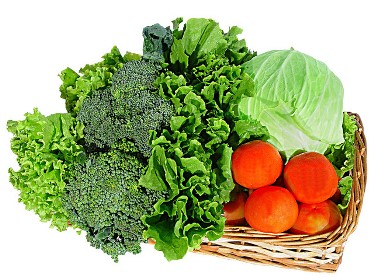
Health Vocabulary
This health vocabulary includes useful words to talk and write about health, ftiness and food

Children and the Family Vocabulary
Children and the Family Vocabulary for IELTS - essential vocabulary to help to improve your score for IELTS

Environment Vocabulary for IELTS
Environment vocabulary words and definitions that you can learn in order to increase your score for the IELTS test.

Work Vocabulary for IELTS
Work vocabulary to improve your IELTS score. The words are related to the topics of jobs, careers and occupations.

The Arts Vocabulary
Learn about the Arts vocabulary to help you in the IELTS test for speaking, writing, reading and listening.

Education Vocabulary for IELTS
Learn useful education vocabulary for IELTS to help you with your writing, speaking and reading.

Information Technology Vocabulary for IELTS
Learn information technology vocabulary, which provides you with a new word, a definition, and then the word in context.
Any comments or questions about this page or about IELTS? Post them here. Your email will not be published or shared.
Before you go...
Check out the ielts buddy band 7+ ebooks & courses.

Would you prefer to share this page with others by linking to it?
- Click on the HTML link code below.
- Copy and paste it, adding a note of your own, into your blog, a Web page, forums, a blog comment, your Facebook account, or anywhere that someone would find this page valuable.
Band 7+ eBooks
"I think these eBooks are FANTASTIC!!! I know that's not academic language, but it's the truth!"
Linda, from Italy, Scored Band 7.5

IELTS Modules:
Other resources:.
- All Lessons
- Band Score Calculator
- Writing Feedback
- Speaking Feedback
- Teacher Resources
- Free Downloads
- Recent Essay Exam Questions
- Books for IELTS Prep
- Useful Links

Recent Articles
Decreasing House Sizes Essay
Apr 06, 24 10:22 AM

Latest IELTS Writing Topics - Recent Exam Questions
Apr 04, 24 02:36 AM

IELTS Essay: English as a Global Language
Apr 03, 24 03:49 PM

Important pages
IELTS Writing IELTS Speaking IELTS Listening IELTS Reading All Lessons Vocabulary Academic Task 1 Academic Task 2 Practice Tests
Connect with us
Copyright © 2022- IELTSbuddy All Rights Reserved
IELTS is a registered trademark of University of Cambridge, the British Council, and IDP Education Australia. This site and its owners are not affiliated, approved or endorsed by the University of Cambridge ESOL, the British Council, and IDP Education Australia.
- A Beginner’s Guide to IELTS
- Common Grammar Mistakes [for IELTS Writing Candidates]
Writing Correction Service
- Free IELTS Resources
- Practice Speaking Test
Select Page
IELTS Topics: Travel and Tourism
Posted by David S. Wills | Oct 12, 2020 | IELTS Tips | 0
One of the common IELTS topics that appears in the exam is that of travel and tourism. In today’s lesson, I will help you learn about this topic so that you can do well in your next test.
First we will look at a little vocabulary about travel and tourism , then we will explore some IELTS speaking and writing questions to give you an idea of what to expect.
Vocabulary about Travel and Tourism for IELTS
When you prepare for IELTS, you never need to know any specialist vocabulary, so for questions about travel and tourism you may find that you can give a brilliant answer with just simple language, as long as it is used with grammatical accuracy. Knowing the difference between “I went to London” and “I was going to London” is very important, for example.
Of course, there are other things to know. It helps to know modes of transport and related vocabulary. [You can learn about transport here .] Another interesting aspect is knowing things you might encounter while travelling, such as accommodation.
I made this PPT about travel accommodation many years ago, but I have just uploaded it today. 🙃 I hope you find it useful.
You should also know the necessary language to talk about types of travel or reasons for taking a trip. Sometimes, new words enter the language, such as “staycation,” which is a very recent portmanteau .
You might also find this list of synonyms for “trip” quite useful:
Travel and Tourism Questions [IELTS Speaking]
The topic of travel and tourism is really common in IELTS speaking. It could easily occur in any of the three parts of this test, so you should be prepared to answer a wide range of questions. [You can find some examples here .]
These questions will be pretty general and simple. It is entirely possible that the same basic question could be asked in a number of different ways.
Perhaps the most common question would be “do you like travelling?” This is very similar to “have you done much travelling?” Of course, the focus has changed slightly but the overall meaning is similar: it’s about you and travel .
I’ll give two sample answers to these questions so that you can understand better:
Q: Do you like travelling?
A: Yeah, I absolutely love travelling. I have visited many countries over the past few years, but of course this all stopped recently because of the virus.
Q: Have you done much travelling?
A: I have done quite a lot of travelling in my life. Altogether, I’ve visited about 50 countries and I try to spend a few weeks each year seeing new places.
Note: It is unlikely that these questions would be asked together because they are very similar. Also, I pretty much answered the second one in the middle of the first answer. I just included them to show how a “do you like travelling” IELTS answer example.
Vaguely Related: Space Travel
I definitely consider space to be a separate topic from travel, but there is some small degree of overlap here. For example, there is a reported IELTS speaking question that goes something like this:
- Do you want to travel in outer space?
- Would you want to travel in outer space?
You might also see this incorrectly reported as “do you want to travel in the outer space?” but this is not correct. We cannot say “the” before “outer space.” It is not a single, definite place. [Read about definite articles here .]
There are numerous possibilities for IELTS cue cards about travel. Here are two of them:
- Describe a place you have visited.
- Describe a place you would like to visit.
Of course, these would require basically the same sort of vocabulary to answer them, but the key difference would be the grammar. In the first instance, you are talking about the past, but in the second you are talking about a possible future.
Here is another one:
- Describe a memorable holiday.
This is pretty similar to the first cue card above, but the word “memorable” must guide our approach. You can see my answer in this video:
In part three of the IELTS speaking test, the questions will become more difficult. These will include abstract topics like age, gender, ethics, and so on. You might encounter questions like this:
Q: Do you think men and women enjoy different types of holiday?
A: I suppose that in general they probably do have different preferences, but of course we should acknowledge the fact that everyone is different and so there are women who enjoy stereotypically male holidays and men that enjoy stereotypically female ones. To give an example, it could be argued that men prefer more active, robust holidays that involve uncertainty, adventure, and even danger. However, I know some women who love this type of thing and so it is not really smart to make assumptions about people.
Q: Do you think that travelling abroad always changes people’s perspective on life?
A: No, not at all. While it certainly is possible that travelling can change people’s perspectives, it is by no means guaranteed. In fact, when you travel to places like Thailand, you see that most tourists have no understanding of the local culture and just hold on to their own original views. The experience may change some people, but I think most people live in a little bubble when they go abroad, and this prevents them from really learning anything.
Notes: I described the sort of travel that men like in interesting terms: “men prefer more active, robust holidays that involve uncertainty, adventure, and even danger.” This is good, descriptive language!
Travel and Tourism Essays for IELTS Writing
Now we shall move on from speaking and instead look at the IELTS writing test. In this section, I will show you some questions about travel and tourism, then show you my sample band 9 answer.
Here is a question that features data about people travelling. I thought that this travel and tourism essay was really interesting, so I have included it here alongside my sample answer.
The line graph displays the numbers of tourists that visited an unnamed Caribbean island between 2010 and 2017. The tourists are divided into two groups – those staying on cruise ships and those staying on the island itself – and these had a loosely inverse correlation. The total number of visitors, however, rose more or less continuously throughout the eight-year period.
In the first year recorded, which was 2010, there were about twice as many tourists staying on the island as those staying on cruise ships. A year later, the number staying on cruise ships doubled to a half million, but this dropped back to around a quarter million in 2012. When the figures for tourists on cruise ships dropped, the number staying on the island rose quickly and over the coming few years, as this sudden increased levelled off, the number of people who stayed on board their ship continued to grow again.
Between 2012 and 2017, there were more and more visitors staying on cruise ships. From just a quarter million, this rose to two million, while the figures for those on the island levelled off at just one and a half million and then dropped slightly in the penultimate year, before finishing at one and a half. This meant that, for the final two years, more tourists stayed on cruise ships than on the island.
Notes on the Answer
In the introduction, I said “an unnamed Caribbean island.” It can sometimes be difficult to introduce something whose name you don’t know, and this is a really convenient way to do it. I strongly recommend you say “an unnamed ___” when this situation arises.
I have also used very few numbers in this essay. Instead of writing 250,000 or 2,000,000, I have said things like “a quarter million” and “two million.” This is much easier. [You can read more about IELTS and numbers here .]
Here is another travel and tourism essay question:
In future, more people will choose to go on holidays in their own country and not travel abroad on holiday.
Do you agree or disagree?
Sample Band 9 Answer
In recent years, people have coined the word “staycation” to describe the phenomenon of taking a holiday closer to home. This essay will argue that such holidays will become more common in the future.
First of all, it may seem as though international travel will become increasingly common, but in fact it is quite clear that it is an unsustainable trend. The carbon cost of flying to another country is enormous, and so many people have begun to ask whether it is ethical to continue doing this. Beyond just the personal level, it is clear that pretty soon governments will have to impose restrictions to limit the number of flights; otherwise, the world will suffer immensely from the burden of so many journeys.
In many parts of the world, people are probably ready to embrace this situation. Humans have had a terrible impact upon the world and many feel that it is time to undo the damage done. This involves some measure of personal sacrifice, which in this case could be forgoing the sort of international trips that used to be quite common. However, this is not all bad. Although foreign countries and exotic locations are exciting, there are treasures almost everywhere. Countries like the UK have poor weather, which is why so many people travel to warmer climates, but the natural beauty of the landscape and the extraordinary historical and cultural sites present myriad options for curious travellers. There will likely be a resurgence of interest in such trips.
In conclusion, it is quite possible that in the future people will realise how much damage humans have done to the world. Many of them may endeavour to make the sort of sacrifices necessary to counteract this ecological destruction, and one small step is embracing local travel.
Notes on the Essay
First of all, you can see that I incorporated the word “staycation” right at the beginning. When you use modern language like this, please don’t just jam it carelessly into your essay. Often, it is very informal, so you can only use it when properly introduced. In this case, I clearly explained its meaning and commented upon it from a sociological perspective.
Here is some more travel and tourism vocabulary from my essay:
- unsustainable trend
- carbon cost
- impose restrictions
- international trips
- exotic locations
- warmer climates
- myriad options
- ecological destruction
You can see that a lot of my language related to the environment, and of course that is often tied to the topic of travel and tourism because of the negative impacts these have on our planet.
I hope that you enjoyed my IELTS essays on travel and tourism, as well as the sample speaking answers I provided. Please remember that your own answers should be unique to you . Don’t try to copy others too much. Your vocabulary will depend upon your life experiences and the places you would or wouldn’t like to visit.
About The Author
David S. Wills
David S. Wills is the author of Scientologist! William S. Burroughs and the 'Weird Cult' and the founder/editor of Beatdom literary journal. He lives and works in rural Cambodia and loves to travel. He has worked as an IELTS tutor since 2010, has completed both TEFL and CELTA courses, and has a certificate from Cambridge for Teaching Writing. David has worked in many different countries, and for several years designed a writing course for the University of Worcester. In 2018, he wrote the popular IELTS handbook, Grammar for IELTS Writing and he has since written two other books about IELTS. His other IELTS website is called IELTS Teaching.
Related Posts
Formal and Informal Vocabulary for IELTS
September 28, 2020
IELTS Speaking Partners
August 30, 2018
IELTS Questions about Punctuality [Speaking Part 1]
July 21, 2020
5 Tricks to Boost Your IELTS Reading Speed
May 3, 2017
Leave a reply Cancel reply
Your email address will not be published. Required fields are marked *
This site uses Akismet to reduce spam. Learn how your comment data is processed .
Download my IELTS Books
Recent Posts
- How to Improve your IELTS Writing Score
- Past Simple vs Past Perfect
- Complex Sentences
- How to Score Band 9 [Video Lesson]
- Taxing Fast Food: Model IELTS Essay
Recent Comments
- David S. Wills on Writing Correction Service
- James Oluwasegun on Writing Correction Service
- Daisey Lachut on IELTS Discussion Essays [Discuss Both Views/Sides]
- David S. Wills on Describe a Historical Period
- Siavash on Describe a Historical Period
- Lesson Plans
- Model Essays
- TED Video Lessons
- Weekly Roundup

25,000+ students realised their study abroad dream with us. Take the first step today
Meet top uk universities from the comfort of your home, here’s your new year gift, one app for all your, study abroad needs, start your journey, track your progress, grow with the community and so much more.

Verification Code
An OTP has been sent to your registered mobile no. Please verify

Thanks for your comment !
Our team will review it before it's shown to our readers.

- Study Abroad Test Prep /
Best IELTS Vocabulary: Tourism and Travel
- Updated on
- May 25, 2023

Tourism Vocabulary IELTS : Tourism Vocabulary IELTS is created with the objective of assessing the candidate’s knowledge of words related to tourism, their meaning and their uses in sentences. If you are planning to score a higher band on the IELTS test , you must have a strong hold over IELTS Vocabulary. To improve your vocabulary skills you need to work on improving your fluency .
The IELTS Vocabulary consists of words related to various topics. Some of these are Climate Change, Social Media, Entertainment, Population, Animals, Health, Environment , Education, etc. The IELTS Vocabulary words include a total of 570-word families, which are divided into these topics. Read this article to know more about the Tourism Vocabulary IELTS.
Tourism Vocabulary IELTS
The IELTS Vocabulary is one of the most scoring sections of the IELTS test. Candidates preparing for their IELTS test must practice efficiently to score a higher band on the test. The best way to improve your tourism vocabulary in IELTS is to practice all the words related to tourism and their meaning. The table below highlights some of the most popular and frequently used words related to tourism.
Also Read : Most Popular Social Media Vocabulary IELTS
Tourism Idioms and Phrases
A lot of times, the IELTS Vocabulary section includes idioms and phrases, where either you have to answer their meaning or their use in sentences. Candidates must have a proper understanding of the tourism idioms and phrases to come out with flying colours in this section. The table below highlights some of the most common tourism idioms and phrases.
The IELTS test is conducted 4 times a month and 48 times annually.
There is no limit on how many times a person can appear for the IELTS test. As long as you are above 17 years of age, you are eligible to appear for the IELTS test.
IELTS is the abbreviation for the International English Language Testing System. It is one of the language efficiency tests, which is used in eligibility criteria to study abroad or live abroad.
The International English Language Testing System, abbreviated as the IELTS test, is an English efficiency test, which is conducted to test the candidate’s proficiency in English. The IELTS vocabulary test often contains questions related to food and health. Candidates must prepare for the vocabulary section accordingly.
Candidates who want to prepare for IELTS or any other language proficiency test, can Build a plan with Leverage Edu‘s Leverage Live classes and our top trainers and strengthen your English score as well as your application so that you can secure your spot in your dream college. Fulfil your dreams of studying abroad with Leverage Edu , to get a free counselling session, reach us at 1800527130 .
Shiva Tyagi
Shiva is a professional content writer with an experience of 2 years. Most of his content is focused on helping students with their education and future plans. In his spare time, Shiva enjoys reading biographies and real-life stories.
Leave a Reply Cancel reply
Save my name, email, and website in this browser for the next time I comment.
Contact no. *

Connect With Us
25,000+ students realised their study abroad dream with us. take the first step today..

Resend OTP in

Need help with?
Study abroad.
UK, Canada, US & More
IELTS, GRE, GMAT & More
Scholarship, Loans & Forex
Country Preference
New Zealand
Which English test are you planning to take?
Which academic test are you planning to take.
Not Sure yet
When are you planning to take the exam?
Already booked my exam slot
Within 2 Months
Want to learn about the test
Which Degree do you wish to pursue?
When do you want to start studying abroad.
January 2024
September 2024
What is your budget to study abroad?

How would you describe this article ?
Please rate this article
We would like to hear more.
Have something on your mind?

Make your study abroad dream a reality in January 2022 with
India's Biggest Virtual University Fair

Essex Direct Admission Day
Why attend .

Don't Miss Out
ESL Activities
ESL Games, Activities, Lesson Plans, Jobs & More
in Listening · Speaking
English for Tourism: Learn Vocabulary for Working in Tourism Industry
There are various kinds of tourism vocabulary to learn, from working in a restaurant to a hotel or as a travel guide. If you want to brush up on your English for tourism, then you’re in the right place. Keep on reading to find out more about English for tourism industry workers. This English for Tourism Vocabulary Builder might be exactly what you need!

- Amazon Kindle Edition
- Bolen, Jackie (Author)
- English (Publication Language)
- 86 Pages - 03/11/2021 (Publication Date)
English For Tourism Workers
Learn the most useful English expressions, phrases, idioms and other vocabulary words to assist people in a hotel, airport, restaurant or on a tour. You can improve your confidence to be able to speak English to your guests. Impress your boss and maybe even get a better job because of your language skills!
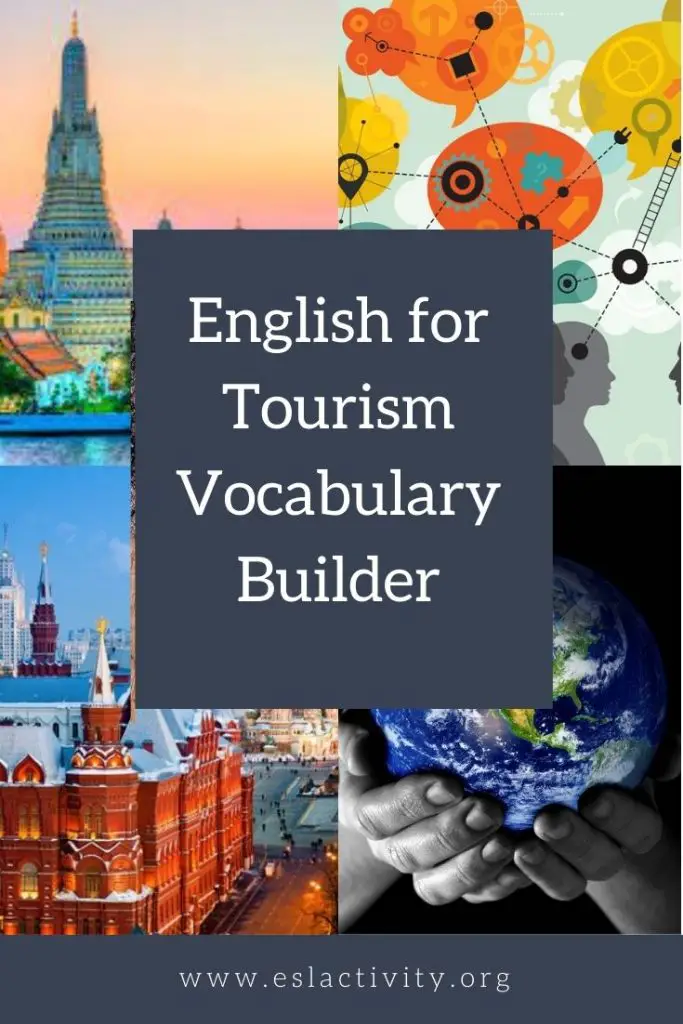
Tourism English vocabulary
There are a number of reasons why you might consider picking up this book. Here are just a few of them:
- Get a better job in the tourism industry because you’re able to speak English well
- Learn some new English idioms and phrases designed to assist travellers.
- Have a variety of authentic dialogues at the airport, in restaurants or hotels at your fingertips
- Improve your American English which can allow you to interact with guests easily
- Speak English to people who need your help in a hotel or restaurant fluently and confidently
- Have some fun while learning travel English
How can I Learn Tourism English?
To learn tourism English, you can follow these steps:
Build a Strong Foundation in General English
Before focusing on tourism-specific vocabulary and phrases, it’s important to have a solid grasp of general English. Improve your reading, writing, listening, and speaking skills through textbooks, online courses, language exchange programs, or language learning apps.

Identify Tourism-related Vocabulary and Phrases
Make a list of common terms and phrases used in the tourism industry. This may include words related to accommodations, transportation, attractions, dining, greetings, directions, and customer service. Use English-English or bilingual dictionaries, travel guides, and tourism websites to compile a comprehensive list.
Take Tourism English Courses
Look for specialized courses or language schools that offer tourism English programs. These courses are designed to teach you the specific vocabulary, phrases, and communication skills needed for the tourism industry. They may cover topics such as hotel reservations, tour guiding, customer service, and cultural awareness.
Practice Speaking and Listening
Engage in conversational practice to improve your speaking and listening skills. Find language partners or join conversation groups where you can practice discussing tourism-related topics. This will help you become comfortable using the vocabulary and phrases you have learned.
Use Online Resources
Take advantage of online resources tailored for learning tourism English. Websites, podcasts, and YouTube channels focused on travel and tourism can provide valuable listening and reading material. Some websites also offer exercises and quizzes to test your understanding.
Read Travel and Tourism Materials
Read travel guides, brochures, websites, and blogs in English. This will expose you to authentic tourism-related content and help you understand how the language is used in real-life scenarios. Pay attention to the vocabulary, sentence structures, and idiomatic expressions used in these materials.
Watch Travel-related Videos and Movies
Watch videos, documentaries, or movies about travel and tourism. This will not only improve your listening skills but also expose you to different accents and cultural contexts. Pay attention to how native English speakers communicate in tourism-related situations.
Role-play and Simulations
Practice role-playing scenarios that commonly occur in the tourism industry. This could include activities like making hotel reservations, providing directions to tourists, or recommending local attractions. Act out these scenarios with a language partner or even by yourself to enhance your fluency and confidence.
Take Advantage of Real-life Opportunities
If you live in a tourist destination or have access to tourists, take advantage of these opportunities to practice your English. Offer assistance to tourists, guide them around your city, or work part-time in a tourism-related job. This will give you practical experience and help you apply your language skills in a real-world setting.
Keep Learning and Engaging
Learning a language is an ongoing process. Stay motivated and continue to practice regularly. Stay updated with current tourism trends, attend workshops, and participate in language exchange programs to maintain and enhance your skills.
Remember that consistency and dedication are key to mastering any language. By following these steps and immersing yourself in tourism-related English content, you can improve your language skills and become proficient in tourism English.
Pick up a Copy of this Tourism Vocabulary Book Today
Does it sound like the right option for you? You can easily find this book on Amazon in a variety of formats. Get the paperback or hardcover copy to read on breaks at work. Or, take the digital version with you on the subway or bus.
Whatever way you choose, get ready to learn the phrases, idioms, expressions and other vocabulary you need to know to work in the tourism industry. Check it out:

Last update on 2022-07-17 / Affiliate links / Images from Amazon Product Advertising API
About Jackie
Jackie Bolen has been teaching English for more than 15 years to students in South Korea and Canada. She's taught all ages, levels and kinds of TEFL classes. She holds an MA degree, along with the Celta and Delta English teaching certifications.
Jackie is the author of more than 60 books for English teachers and English learners, including Business English Vocabulary Builder and 39 No-Prep/Low-Prep ESL Speaking Activities for Teenagers and Adults . She loves to share her ESL games, activities, teaching tips, and more with other teachers throughout the world.
You can find her on social media at: YouTube Facebook Pinterest TikTok LinkedIn Instagram
Top Selling ESL Activity Book

As an Amazon Associate, I earn from qualifying purchases.
More ESL Activities and Games
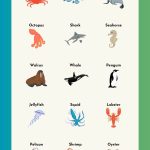
Water Animals Names in English | Sea & Aquatic Animals List
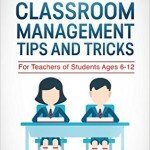
ESL Classroom Management Tips and Tricks | Teaching ESL
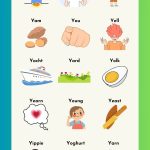
Common Words that Start with Y in English with Images

Man/Woman on the Street ESL Interview Activity
About, contact, privacy policy.
Best-selling author and English teacher Jackie Bolen has been talking ESL activities and games since 2015. The goal is to bring you the best ideas, lesson plans, and activity recommendations for your TEFL classes.
Get in touch: About + Contact
Privacy Policy and Terms of Use
Email: [email protected]
Address: 2436 Kelly Ave, Port Coquitlam, Canada
Welcome Guest!
- IELTS Listening
- IELTS Reading
- IELTS Writing
- IELTS Writing Task 1
- IELTS Writing Task 2
- IELTS Speaking
- IELTS Speaking Part 1
- IELTS Speaking Part 2
- IELTS Speaking Part 3
- IELTS Practice Tests
- IELTS Listening Practice Tests
- IELTS Reading Practice Tests
- IELTS Writing Practice Tests
- IELTS Speaking Practice Tests
- All Courses
- IELTS Online Classes
- OET Online Classes
- PTE Online Classes
- CELPIP Online Classes
- Free Live Classes
- Australia PR
- Germany Job Seeker Visa
- Austria Job Seeker Visa
- Sweden Job Seeker Visa
- Study Abroad
- Student Testimonials
- Our Trainers
- IELTS Webinar
- Immigration Webinar
IELTS Travel, Tourism & Adventure Vocabulary : Useful Phrases & Expressions in IELTS Speaking
Updated On Sep 13, 2023

Share on Whatsapp
Share on Email
Share on Linkedin
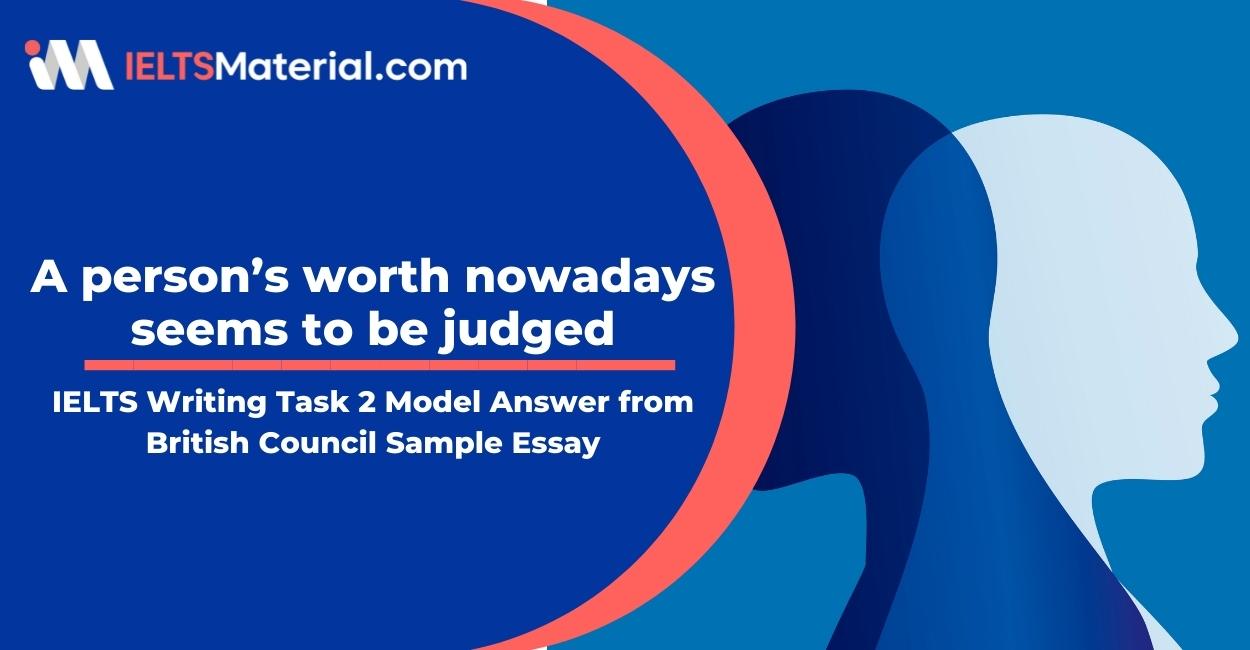
Predicted Cue Cards Topics 2024
A good vocabulary is a big part of gaining fluency in a second language. To do so you must familiarize yourself with common phrases, metaphors and sayings in any given niche field or topic that you may have to speak on. Today we will share with you a wide range of travel and tourism vocabulary words for IELTS to help you boost your IELTS score on any IELTS Speaking or writing question that has to do with travel & adventure.
Useful Collocation and Expressions for IELTS Speaking – Topic:Travel
To get away : To escape, to go somewhere that is not your home. You can also use the noun “a getaway.”
Example: Last week, I had a great chance to get away from the hustle and bustle of the city to visit an ancient village in the countryside.
A thirst for adventure : strong desire for travelling/adventure
Get itchy feet: have a strong desire to travel
Example: I’ve always had a thirst for adventure and often get itchy feet so I decided to set out to a journey from the North to the South of Australia next month.
To find a gem: When you find a place where only locals go and other tourists don’t visit.
Example: Try to find a local guide when you visit a foreign country to successfully find a gem during your trip.
Arduous journey: difficult & tiring journey
Break the journey: stop for a short time during journey
Example: I had a arduous journey to the South of Vietnam last year. I thought I would break the journey somewhere but I finally did it all in one go.
Adventurous explorer: a traveler who is willing to do or try new and daring things
Have a stopover: Have a brief overnight stay in a place when on a long journey to somewhere else, usually by air
Example: I had a stopover in China on the way to Thailand, had a bit of a rest, and did the sights there before travelling on.
Low-cost airline: discount or budget airline
Put somebody on standby: make me wait to see if a seat become available
Example: Last week I got a flight on a low-cost airline to Paris. I then tried to get a flight to the UK but they were all full, so they put me on standby.
To take a red eye: To take a late night airline flight
Example: I had to take a red eye and now I’m exhausted.
Intrepid explorer: brave, with no fear of dangerous situations
Example: In the course of a long and proud career, an intrepid explorer turned herself into a perfect lady.
Off the beaten track: An unusual route or destination
Example: My best friend is a intrepid traveler who has a real sense of adventure. He always love to set out on a journey off the beaten track
Unexplored wilderness: not looked into or investigated; something that you have not done or experienced before
Example: I’m thirsty for a journey into unexplored wilderness and getting right off the beaten track.
To take the road less traveled: To do things differently and to think outside of the box.
Example: Adventurous travelers like to take the road less traveled when visiting a new country.
A real sense of adventure: the urge to explore beyond your daily surroundings and open yourself up to the adventure
To have wanderlust: To want to move around and see a lot of things around the world. To not want to stay in one place.
Example: I had a incurable case of wanderlust.
The first leg of the journey: the first segment of a journey; the first flight of a multi-flight trip.
Example: The first leg of the journey got me to the UK but it just gave me very little indication of what lay ahead.
Off the beaten track (path): in a place where few people go; unusual route/destination
Example: Most young travelers make the effort to get off the tourist trail and look for off the beaten path destinations to experience the raw beauty of the country.
Also check :
- IELTS Vocabulary
- IELTS Speaking tips
- Linking words for IELTS Speaking
- IELTS Speaking recent actual test
- Best IELTS Vocabulary books
- Grammar for IELTS
- IELTS Listening words
- Sports Vocabulary IELTS
- English Pronunciation in use Intermediate pdf
- Work Vocabulary IELTS
- Idioms for IELTS Speaking
- Advanced Vocabulary for IELTS
- IELTS Pronunciation Guide
- Common English words in IELTS Speaking
Part 1 Sample Questions
- Do you like to travel?
- What kind of places have you visited in your life?
- Which place would you really like to visit? Why?
- What’s the best place you’ve ever visited?
- Which form(s) of transport do you usually use?
- What is the easiest way to get around your town/city?
- Do people use public transport where you live?
- Are there any problems with the public transport system in your town/city?
- How do you prefer to travel on long journeys?
- What is the most unusual method of transport you’ve ever used?
Part 2: Cue Card
Describe an interesting journey you have been on./Describe an adventure you had.
You should say :
- where you went
- how you traveled there
- who you went with
and explain what was so memorable about the journey/adventure.
Part 3 Sample Questions
- How important is it to have adventure in our lives?
- What do people learn about themselves from having adventures?
- How do you think people will travel in the future?
- How easy is it to travel around your country?
- Which method of travel do you consider safest?
- Has travel become safer in recent years?
- What are the pros and cons of low-cost air travel?
Remember, the worst thing you could do on the IELTS is to sound like every other Band 6 student by using typical IELTS vocabulary.
Make sure you are using interesting and native vocabulary throughout the exam like the ones in today’s article.
Check out other IELTS Vocabulary lessons for different topics in the Speaking section ( Environment , Accommodation , Education , People (Personality & Appearance) , Sports , Holiday , Relationship )
If you want to boost your IELTS score by polishing up your vocabulary, figure out the lesson: How To Boost Your Vocabulary Score In IELTS ?
Explore IELTS Speaking

30 + Difficult IELTS Cue Card Topics with Answer pdf
Nafia Zuhana is an experienced content writer and IELTS Trainer. Currently, she is guiding students who are appearing for IELTS General and Academic exams through ieltsmaterial.com. With an 8.5 score herself, she trains and provides test takers with strategies, tips, and nuances on how to crack the IELTS Exam. She holds a degree in Master of Arts – Creative Writing, Oxford Brookes University, UK. She has worked with The Hindu for over a year as an English language trainer.
Explore other Speaking Articles
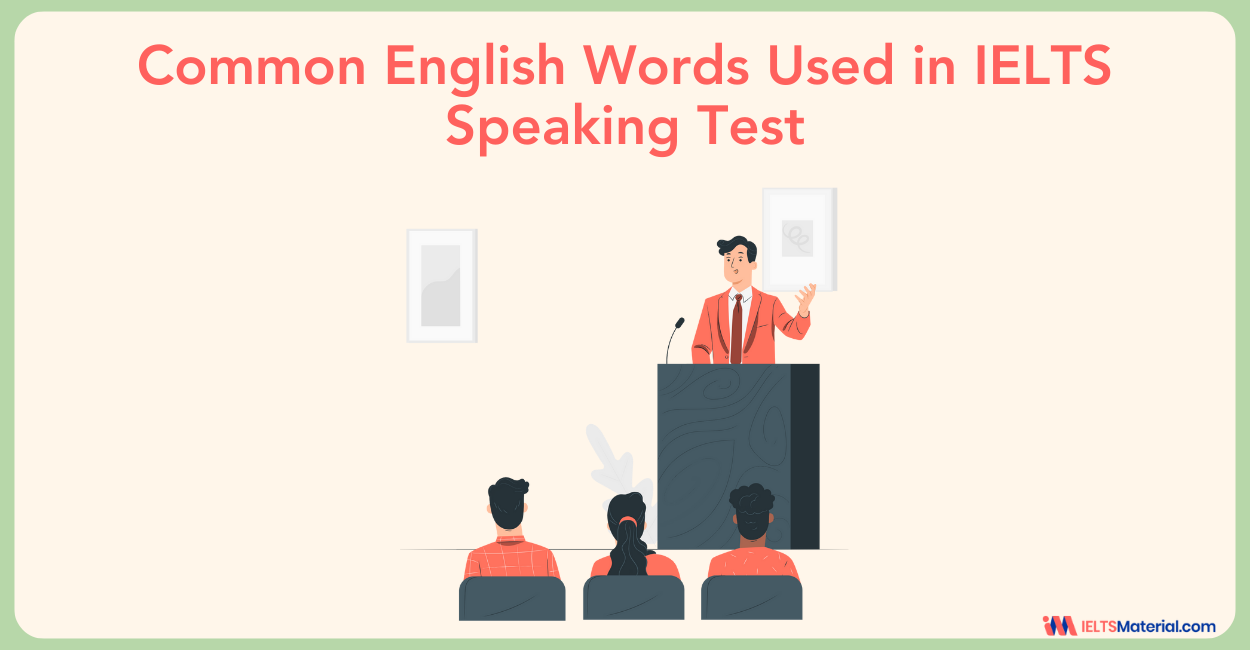
Kasturika Samanta

Nehasri Ravishenbagam

Prachi Ramkrishna

Post your Comments
Recent articles.

Our Offices
Gurgaon city scape, gurgaon bptp.
Step 1 of 3
Great going .
Get a free session from trainer
Have you taken test before?
Please select any option
Get free eBook to excel in test
Please enter Email ID
Get support from an Band 9 trainer
Please enter phone number
Already Registered?
Select a date
Please select a date
Select a time (IST Time Zone)
Please select a time
Mark Your Calendar: Free Session with Expert on
Which exam are you preparing?
Great Going!

- IELTS Books
- Latest IELTS Listening
- Latest IELTS Reading
- Latest IELTS Speaking
- Latest IELTS Writing
- Speaking Part 1
- Speaking Part 2
- Speaking Part 3
- Practice Tests
- IELTS General
Vocabulary for IELTS – Topic: Tourism
Ielts topic related vocabulary: tourism – word lists, collocation, idioms .
1. To swarm with tourists Meaning: when people swarm somewhere, they move there in a large group or in large numbers. Example: During the summer, the little seaside town is swarming with holiday makers.
2. To be thronged with tourists Meaning: refers to the situation of a place having a great number of visitors crowded or considered together Example: At weekends, London, in particular, is swarming with tourists and certain areas of the city such as Oxford Street and Covent Garden are thronged with visitors.
3. Family outings Meaning: family excursions for pleasure Example: It’s time to give your child a bigger world to discover by lining up a few fun family outings that are tailor-made for the little ones in your life.
4. To break the bank Meaning: to use up all one’s money/ to cost too much. Example: Having a winter vacation in the sun without breaking the bank is a dream come true.
5. Motion/travelsickness Meaning: to recover from motion (travel) sickness (which is caused by repeated unusual movements during travelling) Example: During long car or bus journeys, she often suffers from motion sickness.
6. Backpackers Meaning: people who travel on holiday carrying all their equipment and clothes in a backpack, like a large very strong bag which they carry on their back. Example: London has cheap accommodation for backpackers who don’t have much money to spend on hotels.
7. To hurt tourism Meaning: to have negative impacts on tourism Example: A weaker dollar could hurt outbound tourism.
8. To experience phenomenal growth Meaning: to experience an extremely successful or special development, especially in a surprising way Example: In recent decades there has been a substantial diversification in international tourism destinations, and many developing countries have experienced phenomenal growth in tourist arrivals and receipts.
9. The height of the tourist season Meaning: the time of year when the greatest number of people visit a place and when the prices are at their highest level Example: Mid-summer in the UK is normally the height of the tourist season, so remember to book a hotel in advance.
10.To book Meaning: to reserve something, such as a hotel room or a ticket Example: I’d like to book a table for two at 8pm this evening, please.
11.To plague sth Meaning: to cause worry, pain, or difficulty to someone or something over a period of time Example: Tourist hotspots are also plagued by problems like theft, begging and drug abuse.
12.A boost to tourism Meaning: the act of improving the development of tourism Example: The new train service will enable visitors to reach the resort and provide a boost to tourism in the area.
13.Ecotourism Meaning: organized holidays which are designed so that tourist damage the environment as little as possible. Example: Ecotourism will become increasingly popular in the future, as more and more people become aware of the need to protect the environment.
14.To have a thirst for something Meaning: to have a strong desire for something Example: He has been all over the world, but he still has a thirst for seeing new places and enjoying new experiences.
15.To be rewarded by a vista Meaning: to see a view, especially a beautiful view from a high position after a hard time Example: After a hard climb, we were rewarded by a picture-postcard vista of rolling hills under a deep blue summer sky.
16.To have a whale of a time Meaning: to have an exciting or fun time Example: We had a whale of a time at Tom’s
17.A package holiday Meaning: a holiday that is organized by a company at a fixed price, including the cost of a hotel, travel etc. Example: Package holidays to Spain started to become popular in the UK in the 1960s.
18.To put to the test Meaning: to see what someone or something can achieve, to find out how good someone or something is Example: Adventure tours put my survival skills to the test.
19.To sunbathe Meaning: to sit or lie in the sun, in order to get brown/to get a suntan Example: I don’t like to sunbathe when I go to the beach, so I spend most of the time swimming in the sea.
20.To get away from it all Meaning: to have a holiday in a very quiet place where you can relax. Example: Tourists have always traveled to natural areas of beauty to avoid the noisy crowds and to get away from it all.
21.A wildlife safari Meaning: a holiday [often in Africa] to see wild animals. Example: The company organizes wildlife safaris in Africa to see lions and elephants in their natural habitats.
22.The holiday of a lifetime Meaning: a special holiday that you are unlikely to repeat Example: He is planning the holiday of a lifetime to see pandas in China.
23.A charter flight Meaning: a cheaper form of flying than a normal airline. Example: There are now charter flights to most tourist destinations, costing half the price charged by some companies.
24.Out of season Meaning: not in the main holiday period Example: If you plan to visit Vietnam out of season, make sure that you avoid the monsoons.
25.A holiday resort Meaning: a place where lots of people go for a holiday Example: If you like to lie on the beach, Thailand offers some very popular holiday resorts.
26.Self-catering Meaning: a holiday where you supply your own food Example: To save money, my parents prefer to take self-catering holidays in a holiday apartment and cook their own meals.
27.To go sightseeing Meaning: to look around the places that tourists like to visit Example: If you go sightseeing in Paris, be sure to see the Eiffel Tower, the Louvre and the Palace of Versailles.
28.A city break Meaning: a short holiday in a famous tourist city. Example: If you are planning a city break in Sydney, visit the Opera House and the famous Bondai Beach.
29.A guided tour Meaning: an organized group shown around a place of interest by an expert Example: The company runs guided tours of Hanoi in English and Japanese.
30.A breathtaking view Meaning: an extremely beautiful view Example: From the top of the mountain, there is a breathtaking view of the coast.
Model Answers for IELTS Speaking Part 1 – Topic: Daily routine
Model answers for ielts speaking part 1 – topic: street market, you may also like, check your vocabulary for ielts by rawdon wyatt..., top 6 ielts books to boost your vocabulary..., ielts band 8+ vocabulary for writing task 2..., leave a reply cancel reply.
- Skip to main content
IELTS Podcast
Pass IELTS with expert help.
IELTS Vocabulary about Travel and Places
Home » IELTS speaking » IELTS vocabulary about Travel and Places
Passing the IELTS speaking test with a good grade will depend on your ability to answer the questions using appropriate vocabulary in the correct context.
Collocations are words that naturally combine to form a phrase.
These words when used in combination make the English speaker sound more fluent and natural. This is why you should be learning collocations under various subject headings to help you do well in the IELTS speaking test.
Answering questions about travel and holidays
It’s always a good idea to start with what you enjoy. What’s your favourite holiday destination or holiday resort? Is there a well-known tourist attraction or popular holiday destination in your country you could talk about? What is the main holiday period in your country or in your region? What tourist attractions are most popular during the national holidays?
These topics are so popular in the IELTS speaking test. They can be used to answer questions on lots of different themes (an interesting day, a terrible experience, your birthday for example).
But what if you’ve never been to a foreign country or on a guided tour? It doesn’t matter at all. Remember that you don’t have to tell the truth in an IELTS exam – you can say anything you like. Perhaps you heard a great story about a wildlife safari or a beach off the beaten track from one of your friends or family members and you get a question asking about YOUR favourite holiday – well, then your IELTS speaking exam should be easy!
Examples of questions about holiday travel
Part 1 questions.
Examiner: Where do you like to travel during the holidays?
Answer: I like to travel abroad but international travel can be expensive, so I usually plan affordable travel . Travelling to holiday destinations when it is out of season saves a lot of money. Out-of-season travel is also the best way to avoid places that are swarming with tourists.
Examiner: What are your favourite holiday pastimes?
Answer: I like to get away from it all . I look for exotic destinations with scenic views that are off the beaten track . I’d love to go on a wildlife safari! I tend to avoid guided tours and packaged deals as I prefer to go sightseeing on my own.
Examiner: How do you plan and prepare for your holiday?
Answer: I always do my research because I know exactly what I like. I thumb through holiday brochures and check travel sites like Airbnb on the Internet. I’m drawn to spectacular beaches and lush forests. I usually make advance reservations for self-catering accommodation .
Part 2 style questions
Examiner: describe one of your best travel experiences..
This type of question supports a when, where and who reply.
Answer: Last year a friend and I took a long-haul flight to Peru. We were travelling light so we were able to really get around . We stayed in quaint villages and hiked through lush rainforests . We were determined to do as the locals do , rather than go on guided tours, so we stayed with local people for part of the trip.
We visited colourful craft markets and brought back souvenirs, to remind us of our trip. One of my most memorable experiences was to the Sacred Valley of the Incas. It is a little bit off the beaten track but it is surrounded by great scenic beauty and magnificent landscapes.
Examiner: Describe a city that you think is interesting.
You should say:
- where it is
- what it is famous for
- how you knew this city
- explain why you think it is very interesting
Read and listen to the sample answer here .
Examiner: Describe a tradition in your country.
- who takes part in it
- what activities there are
- explain how you feel about it
Part 3 style questions
Examiner: What type of holiday destination do you think attracts most tourists?
Answer: I know that many people are drawn to wildlife safaris . This is certainly one of the big attractions in Africa. In Europe and Asia, the stunning architecture , museums and arts and culture attract thousands of tourists every year.
Examiner: Do you think that the tourism industry will continue to grow in the next two decades?
Answer: I do. Many European and Asian countries have aging populations who will have time on their hands in the future. Many of them are likely to seek holiday destinations around the world . Today there are many affordable destinations that offer good value for money.
Examiner: What do you think your country could do to attract more tourists?
Answer: My country has stringent visa regulations . If these were relaxed, I think that more visitors would choose to visit. We have an efficient public transport , plenty of accommodation and natural and historical places of interest.
IELTS Vocabulary to talk about Cities
- add to (its) attraction: make it more attractive
- thriving: lively and successful
- hustle and bustle: full of movement and noise
- a craze: an activity that suddenly becomes very popular
- a (holiday) resort: a popular destination for holidays
- a fascinating mix: different elements that go together really well
- steeped in history: full of history
- ultra-modern: very recent and new
- know like the back of (your) hand: be very familiar with, know everything about
- a home from home: a place where you feel very happy and comfortable
- tourist hot spots: places very popular with tourists
- soak up the atmosphere: observe and enjoy what’s happening around you
- a bit pricey: quite expensive
- easy going: relaxed, without pressure
- blend in: easily fit in with other people
IELTS Vocabulary about Travel
- Affordable destinations – Places within a reasonable price range
- Affordable travel – Travel which is within your price range
- Around the world – In all corners of the globe
- Arts and culture – The art, music and other cultural aspects of an area
- Craft markets – Stalls where goods made by the local people are sold
- Do as the locals do – Enjoy the activities as the local people do
- Efficient public transport – A functioning transport system intended for the use of residents and visitors
- Exotic destinations – Unusual or strange holiday destinations
- Get around – Get from place to place
- Guided tours – Walking, hiking or driving visits led by a guide who knows the area
- Holiday brochures – Pamphlets advertising holiday destinations
- Holiday destination – Place to which you leave on holiday
- Long-haul flights – Long distance flights
- Lush rainforests – Luxuriant equatorial forests
- Magnificent landscapes – Impressive scenery
- Make advance reservations – Booking ahead of time
- Memorable experiences – Activities that you will remember for years
- Off the beaten track – A place that is not on the main thoroughfare
- Out of season – Outside the most popular holiday period
- Packaged deals – Travel deals that are put together by an agency and sold as a package
- Quaint villages – Old-fashioned or charming small towns
- Scenic views – Lovely scenes
- Self-catering accommodation – A Place to stay where you see to your own food
- Spectacular beaches – Impressive sandy shorelines
- Stunning architecture – Magnificent buildings
- Swarming with tourists – Full of holidaymakers
- Time on their hands – Available time to do as you choose
- To get away from it all – To get away from everyday routines
- To go sightseeing – Take a trip around an area to see what it has to offer
- Travel abroad – Travel to overseas destinations
- Travelling light – Travelling with little luggage
- Value for money – A good return on investment
- Visa regulations – Laws that relate to entry into a country
- Wildlife safari – A guided tour through a game park
Click here for a free master list of collocations!
More IELTS Speaking tutorials
More IELTS vocabulary tutorials to help you enhance your vocabulary and prepare for your IELTS exam.
- Vocabulary about climate change
- Vocabulary about fashion and shopping
- Vocabulary about advertising
- Vocabulary about social media
- Vocabulary about food and nutrition
- Vocabulary about family and friends
- Vocabulary about sport
- Vocabulary about the Coronavirus
- IELTS Speaking Part 2 Cue Cards about People
- IELTS Speaking Part 2 Cue Cards about Places
- IELTS Speaking Part 2 Cue Cards about Shopping
- IELTS Speaking Cue Cards about Accommodation

‘Tourism’ Vocabulary Practice
Do you know a lot of tourism vocabulary? Learn more words with this Study Set !
Be more effective with your IELTS preparation at home. To do so, you need to improve your knowledge of Academic English Vocabulary . If you don’t know that many high-level English words related to IELTS topics, it will be hard to talk about some topics in the IELTS Speaking test. Also, it will be hard to understand some lectures and passages in the IELTS Listening and Reading tests . So, as part of any good IELTS Preparation Plan to help you crack the IELTS, you want to study new advanced English vocabulary for IELTS topics.
Here is just one of the Study Sets you can use as an IELTS Vocabulary Test . This Study Set focuses on high-level words related to ‘ tourism ‘. This is a common topic in IELTS Reading passages for the Academic IELTS test. Words from this list could help you to answer questions in:
- Sections 1 & 2 of the IELTS Listening test
- Parts 1 or 2 of the IELTS Speaking test
How to use this ‘Tourism’ Study Set
You want to practice not only memorizing definitions for these words. You also need to practice spelling them. This is because to get a high IELTS Listening score, you need to know how to spell academic vocabulary like these from the Study Set.
Learn how PELA can help you improve your English with PELA’s Vocabulary Builder Study Sets!

‘Tourism’ Crossword
You can also practice your spelling skills by doing crosswords!
Here is the list of Academic English words in this Study Set related ‘ tourism ‘. ‘Fill-in-the-Blank’ questions in the IELTS Listening test have used many of these words. So, you need to know how to spell them. These are also useful words for any academic passage related to ‘ tourism ‘, ‘ travel ‘, ‘ history ‘, or ‘ cities ‘!
Tourism vocabulary
Learn how pela can help you improve your english, even if you cannot join us here in portland, oregon, more ielts exam tips.
- Plant, Animal, & the Environment Vocabulary
- History & Anthropology Vocabulary
- Transportation Vocabulary
- Medical & Healthcare Vocabulary
- Geology & Geography Vocabulary
- Materials Vocabulary
- Visual Arts Vocabulary
- Weather Vocabulary
- Performing Arts Vocabulary
- Communication Vocabulary
- Pollution Vocabulary
- Psychology Vocabulary
- Architecture Vocabulary
Want to know how to start IELTS preparation at home? Learn the best way to prepare IELTS Speaking questions with the Portland English Language Academy. You can learn many IELTS preparation tips for how to improve your IELTS score, including how to improve your IELTS Speaking and Writing, with PELA Online’s Academic IELTS Preparation course , with Modules to help you with listening, reading, writing, and speaking test questions.
Watch Lesson 1, Module 1 for IELTS Speaking for FREE!
Watch Lesson 1, Module 1 for IELTS Writing Task Two for FREE!
Want to learn more IELTS Speaking tips? Learn what words you should use in the IELTS Speaking Test!
Be sure to subscribe to PELA on Facebook , YouTube , Instagram !
Join PELA’s English classes online today!

The Portland English Language Academy (PELA), located in Portland, Oregon USA, has taught English since 1989. PELA Online is our chance to make new friends and stay in touch with old ones as we help you reach your English goals.

- Portland English Language Academy
- 2007 Lloyd Center, Portland, OR 97232 USA
- +1 503-226-1656
- [email protected]

English Vocabulary for Tourism and Sightseeing
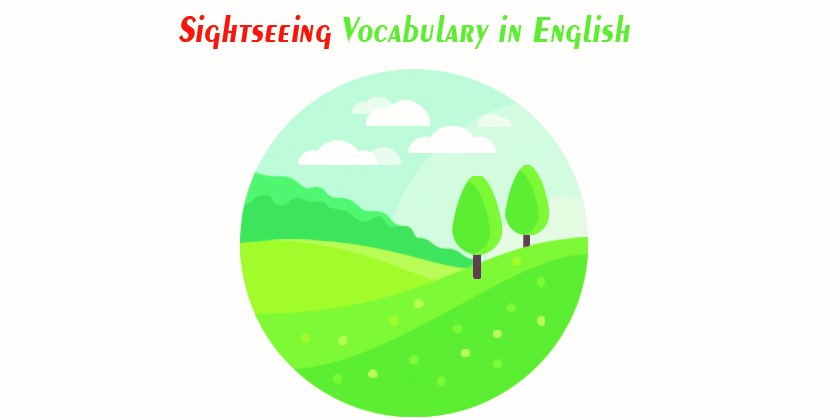
Talk about beautiful places for sightseeing in your country. Use the English vocabulary and tourism and sightseeing below, beside your own words.
Check out more common English vocabulary and phrases…
Share this:
- Click to share on Facebook (Opens in new window)
- Click to share on Twitter (Opens in new window)
- Click to email a link to a friend (Opens in new window)
- Click to share on LinkedIn (Opens in new window)
- Click to share on Pinterest (Opens in new window)
Related posts
Great body language in communication, how to present a best agenda of a presentation or speech, english phrases and vocabulary relating to marriage.
Thank you very much for providing tourism word which is very useful artical for me.
Leave a Comment Cancel Reply
Save my name, email, and website in this browser for the next time I comment.

Exam English ✓
B2 listening.
- B2 Vocabulary
Free Practice Tests for learners of English
B2 is one of the CEFR levels described by the Council of Europe.
B2 Listening: Tourism
B2 listening topics.
- Education
- Accommodation
- Leisure
- Tourism
- Travel
- Health
- Environment
- Describing places
2021 © Exam English Ltd. ALL Rights Reserved. Home | Terms of Use | Privacy policy Cookie preferences. -->
To Travel is To Live: A Comprehensive Guide Through English Vocabulary for Tourism

Teaching English as a foreign language is an international concept peculiar to many countries worldwide. And the good news is that you can use it in any tourist destination, from the United States to Australia or Japan. Knowing at least basic words and phrases is essential to feel confident when communicating with English speakers. Today’s article will accompany you through the most important stops on your trip abroad. So buckle up as we are ready to start our journey!
English for Tourism: General Vocabulary and Phrases
Today, over 13% of the world’s population speaks English. Therefore, numerous phrases and expressions can be useful for locals and tourists. But before diving into more specific vocabulary, let’s learn some general terms for your travel adventures . Here are some of them:
- Tourist – a person who travels for pleasure.
- Attractions – places of interest visited by tourists, including landmarks, museums, theme parks, etc.
- Guide – someone who provides information and assistance to tourists during their journeys.
- Souvenir – a memento or keepsake people buy to remember their trip.
- Itinerary – a planned route or schedule for activities .
- Accommodation – a place where people stay overnight, including hotels, hostels, or vacation rentals.
- Landmark – a well-known and easily recognizable feature or monument significant to a specific location.
- Guidebook – a book that provides information, recommendations, and maps for tourists.
- Transportation – the ways of getting from one place to another, including buses, trains, or taxis.
- Passport – an official government document that identifies a person and allows them to travel.
- Visa – an endorsement or a stamp in a passport that grants permission for entry into a specific country.
- Currency – the particular type of money used in a country or region.
These are just a few examples of English tourist vocabulary. However, many more terms and phrases can become useful depending on the context or specific travel destinations. Let’s learn the most common ones by entering every stage of a typical trip abroad.
Air Travel and Transportation
Every journey starts with choosing the destination. And after finding out where you want to go, you immediately book the tickets and enter your adventures. Then, you arrive at the airport and investigate how to transport to your accommodation. Every step of this journey is accompanied by different words and new English phrases.
- Booking and tickets.
Can I ask you to help me book a ticket from London to Paris, please?
What is the departure time for the next flight to New York?
Can I choose my seat, or is it assigned automatically?
May I see your boarding pass again, please?
- Modes of transportation.
Is there direct transport from Venice to Florence?
Where is the nearest bus station?
Could you help me, please? I need to call a taxi .
I’m looking for a car for a week trip. Where can I rent it?
- Public transport.
Which bus should I take to reach the city center?
What time does the next train to Edinburgh depart?
How much is the fare for a subway ride?
Is this the right subway line for the museum?
Checking in the Hotel
We all want to relax and lay down after a long flight or ride. And the best place to do so when traveling abroad is the hotel. But before entering your room, you need to communicate with the person at the reception desk. After saying “hello,” use some of the following phrases.
- Providing information.
I have a reservation for /the number of nights/ from /the check-in date/ to /the check-out/ date.
I booked a /room type/ for my stay.
I requested a non-smoking room.
I have a special request.
- Identification and payment.
Here is my passport for identification.
Could you please provide me with the registration form to fill out?
What is the total cost of my stay?
Could I pay with cash/credit card?
- Clarifying policies and services.
What time is the check-in/check-out?
Is breakfast included in my reservation?
What are the hotel’s facilities and services available for guests?
Could someone please help me with my luggage?
Ordering Food and Exploring Restaurants
Finally, when you’ve relaxed a little, it is time to find something to eat. One option is to order food from the hotel’s restaurant. But you can also use your knowledge after years of English learning for foreigners and look for some exciting restaurants. To make the process smoother, memorize some of these phrases.
- Asking for recommendations.
What can you recommend from the menu?
Could you suggest any popular dishes?
Are there any vegetarian/vegan options available?
Do you have any local or seasonal dishes?
- Placing an order.
I would like to order the /dish name/, please.
Can I have this /menu item/ with /specific customization/?
May I request /a specific dietary requirement/ for my meal?
Could you bring me a glass of sparkling water, please?
- Special requests or modifications.
Does this dish contain any /specific allergen/?
Could I have the dressing/sauce on the side, please?
Can you make it a little less spicy?
Is it possible to substitute the /ingredient/ with an /alternative ingredient/?
English for International Tourism: Communicating with Locals
When you have covered your basic travel needs, it is time to explore the local attractions and landmarks. And, of course, it would be impossible without communicating with locals, so let’s find out how to do it in different circumstances. The best way is to memorize some of these English for tourist guides phrases.
Asking for Directions and Getting Recommendations
It is usually difficult for tourists to find the destination without asking any questions (unless you are a topographical genius). In that case, local strangers come to the rescue. They can also help you with unique places to visit and other helpful recommendations. But before asking them, remember that English for international tourism person is different than for native speakers. Hence, keep in mind some of these phrases.
- Asking for directions.
Excuse me, can you tell me the shortest way to the /destination/?
I’m a bit lost. Could you please help me reach this place?
Which way is the nearest landmark?
I’m trying to find the /street name/. Could you please give me directions?
- Getting recommendations.
I’m looking for a good restaurant nearby. What can you recommend?
What are some popular attractions or places to visit in this area?
Do you know any nice cafés or coffee shops nearby?
Could you suggest a local dish that I must try?
- Seeking specific places or services.
Is there a pharmacy/bank/hospital near here?
Where can I find a grocery store/souvenir shop?
I’m interested in exploring the art scene. Are there any galleries in this area?
Are there any hidden gems or off-the-beaten-path places nearby?
Language for Shopping (and Bargaining)
We can’t speak for you, but one of our favorite things, after teaching English as a foreign language, is visiting local markets and small family shops when traveling abroad. These are the best places to communicate with people, practice speaking, learn more about the culture, and, of course, buy some nice souvenirs. If you like these things as much as we do, don’t forget to learn some of these phrases.
- Inquiring about the products.
Could you tell me more about this item?
What are the features/specifications of this product?
Is this item available in a different size/color?
Is there a warranty/guarantee for this item?
- Asking for the price.
How much does this cost?
What is the price of this item?
Could you give me a discount on this product?
Is there any discount available for this?
- Bargaining and negotiating.
Is there any room for negotiation on the price?
Could you offer a lower price for this item?
I’m interested in buying multiple items. Can we work out a deal?
Would you consider a discount if I purchase this along with /another item/?
Nail English Speaking with Promova
At Promova, we believe that learning a language is the key to immersing yourself in the cultures you encounter while traveling. And we are here to empower you with different essential skills that will transform your tourism experience. With all the options available, you can definitely find the perfect solution for yourself.
Our team of professional tutors offers both one-on-one and group lessons tailored to your specific needs. They always ensure that you progress at your own pace while receiving personalized guidance. And the best thing is that we invite you to examine our free trial lesson. You can explore our teaching methods before making your final decision. Another amazing option is our online language courses that bring the classroom to your screen.
But we know that learning a language is not just about the lessons – it’s about practicing and engaging with others. That’s why we offer you to join our free Conversation Club . Thereyou can meet fellow English learners, share experiences, and enhance your speaking skills in a supportive environment. Join Promova today and let your adventures truly come alive with the power of language proficiency.
To sum up, language is the ultimate key that opens doors to rich cultural experiences and amazing travel adventures. Whether you’re going on a solo expedition or joining a group of fellow wanderers, even basic tourism vocabulary can bridge the gaps and improve your communications. We believe this article will help you in your next journey. By the way, what is your favorite travel destination? Tell us in the comments!
Is it necessary to learn English for successful tourism?
While it’s not an absolute requirement, learning English can significantly improve your travel experience. Since it is a common language, it can help you communicate with locals, navigate unfamiliar environments, and access a broader range of services and information. You will easily interact with people from different countries, making your adventures more enjoyable and rewarding.
What are the best resources for studying English tourism vocabulary?
Since most travel words and phrases are very straightforward, you can start by expanding your general vocabulary. You can do it by practicing with professional tutors or reading books. For more specific terms, you can watch TV shows or movies dedicated to the travel topic, like Rick Steven’s Europe or Diners, Drive-Ins, and Dives .
What should I do if I don’t understand a native speaker?
Language barriers can sometimes pose challenges during your travels. If you can’t understand a native person, relax and don’t panic. Just kindly ask your interlocutor to repeat their line or, maybe, speak slowly. Don’t forget to mention that English is not your mother tongue – most locals will understand your situation and use more simple phrases and words.
Can my English fluency level negatively affect my travel experiences?
Although a lower level of English fluency may present certain challenges, it should not necessarily negatively impact your travel experiences. Traveling is about embracing new cultures, connecting with people, and exploring the world. Even with limited English skills, you can still navigate your way, interact with locals, and enjoy your adventures.
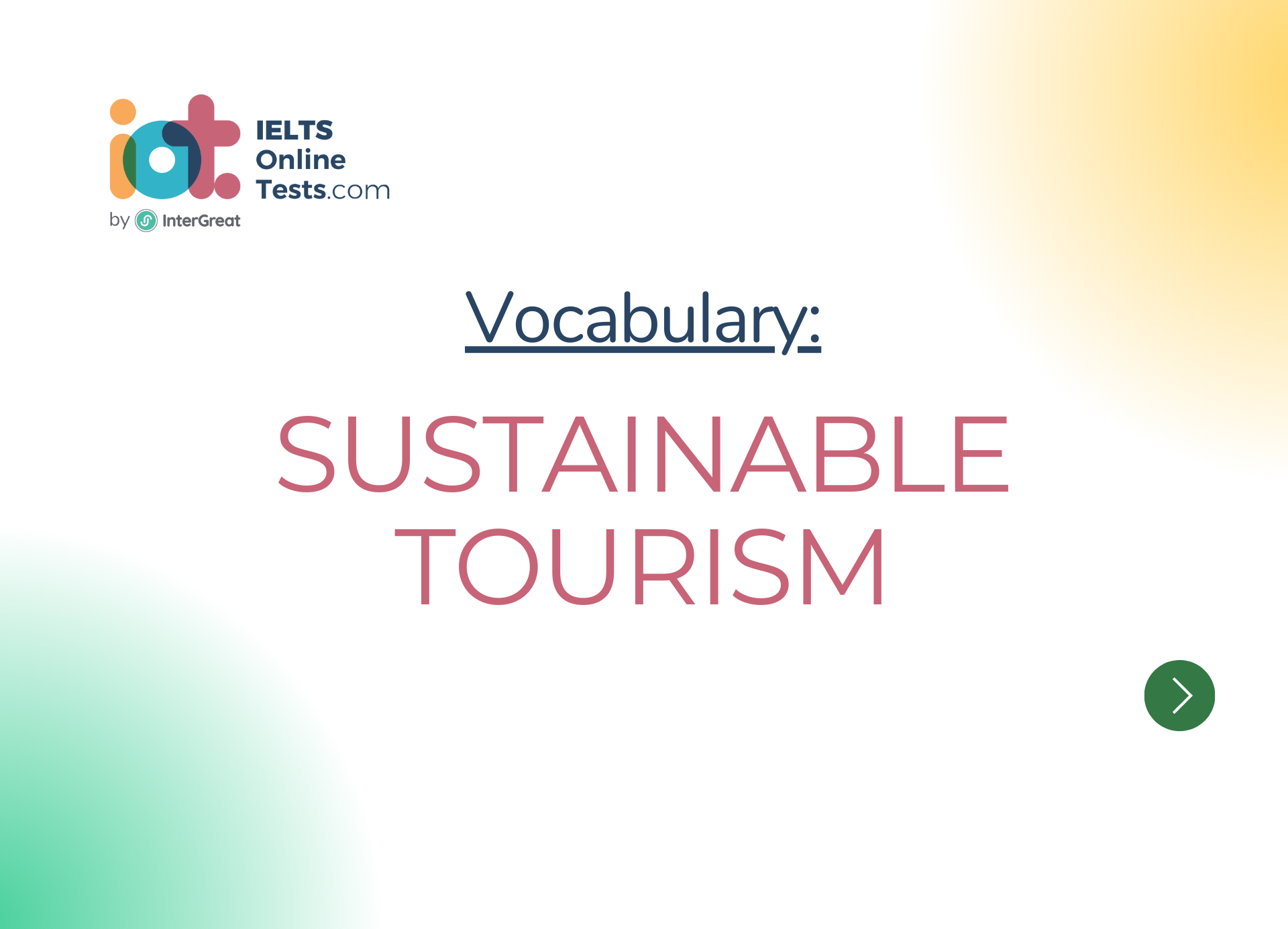
Sustainable tourism
Below is a detailed list of vocabulary related to "Sustainable tourism" suitable for IELTS band 6.5-8.0:
Sustainable Tourism :
- Definition: Tourism that aims to have a positive impact on the environment, society, and economy of a destination, while preserving its cultural and natural resources for future generations.
Ecotourism :
- Definition: Responsible travel to natural areas that conserves the environment and sustains the well-being of local communities.
Responsible Travel :
- Definition: Traveling in a way that minimizes negative impacts on the environment and respects the local culture and communities.
Carbon Footprint :
- Definition: The total amount of greenhouse gases produced, directly or indirectly, by an individual, organization, or product.
Green Practices :
- Definition: Environmentally friendly actions and behaviors adopted by businesses and travelers to reduce their ecological impact.
Biodiversity :
- Definition: The variety and variability of life forms within a given ecosystem, both plants and animals.
Cultural Preservation :
- Definition: Efforts to safeguard and maintain the cultural heritage and traditions of a destination.
Community-Based Tourism :
- Definition: Tourism that directly involves and benefits the local communities and aims to empower them economically and socially.
Conservation :
- Definition: The protection and preservation of natural resources, wildlife, and ecosystems.
Environmental Sustainability :
- Definition: The responsible use of natural resources to ensure that they are available for future generations.
Eco-friendly Accommodation :
- Definition: Lodging facilities that adopt practices to reduce their environmental impact, such as using renewable energy and minimizing waste.
Local Empowerment :
- Definition: Activities and initiatives that give local communities more control over their resources and decision-making.
Sustainable Development :
- Definition: The practice of meeting the needs of the present without compromising the ability of future generations to meet their own needs.
Carbon Offset :
- Definition: A reduction in greenhouse gas emissions to compensate for emissions made elsewhere, typically achieved through projects that reduce or sequester carbon.
Ethical Wildlife Tourism :
- Definition: Tourism activities that promote the well-being of animals and do not harm or exploit them.
Fair Trade Tourism :
- Definition: Travel that supports fair wages and working conditions for local employees in the tourism industry.
Nature Conservation :
- Definition: The protection and preservation of natural landscapes, habitats, and species.
Sustainable Practices :
- Definition: Actions and behaviors that promote environmental, social, and economic sustainability.
Cultural Exchange :
- Definition: Interacting with and learning from local cultures and traditions during travel.
Environmental Impact Assessment :
- Definition: A study that assesses the potential environmental effects of a project or development.
Sustainable Tourism Certification :
- Definition: A recognition or label given to businesses and destinations that meet specific sustainability criteria.
Waste Reduction :
- Definition: Strategies and initiatives to minimize the amount of waste generated during travel and tourism activities.
Water Conservation :
- Definition: Practices and measures to preserve and efficiently use water resources.
Local Sourcing :
- Definition: Purchasing products and services from local suppliers to support the local economy.
Sustainable Tour Operator :
- Definition: A company that organizes travel experiences with a focus on sustainability and responsible practices.
Social Responsibility :
- Definition: The obligation of individuals and organizations to act in ways that benefit society as a whole.
Volunteer Tourism :
- Definition: Traveling to participate in volunteer activities that contribute to community development or environmental conservation.
Sustainable Transportation :
- Definition: Modes of travel that have a lower impact on the environment, such as biking, walking, or using public transportation.
Sustainable Tourism Policy :
- Definition: Government or organizational guidelines and regulations that promote sustainable tourism practices.
Resource Management :
- Definition: Strategies for the responsible use and conservation of natural resources in tourism destinations.
By incorporating these vocabulary words into your studies and practice, you can enhance your language proficiency and be better prepared for the IELTS exam. Best of luck!
Share with friends
Scan below qr code to share with your friends, related ielts tips.

Temperature
Here's a lesson on vocabulary related to "Temperature" for the IELTS band...

Economic globalization
Here are some vocabulary words related to economic globalization for IELTS...

Humanities subjects
Here's a lesson on vocabulary related to "Humanities Subjects" for the...

Types of education
Here's a lesson on vocabulary related to "Types of Education" for the IELTS...

Legal considerations
Here's a detailed list of vocabulary related to legal considerations for...
Thank you for contacting us!
We have received your message.
We will get back within 48 hours.
You have subscribed successfully.
Thank you for your feedback, we will investigate and resolve the issue within 48 hours.
Your answers has been saved successfully.
Add Credits
You do not have enough iot credits.
Your account does not have enough IOT Credits to complete the order. Please purchase IOT Credits to continue.

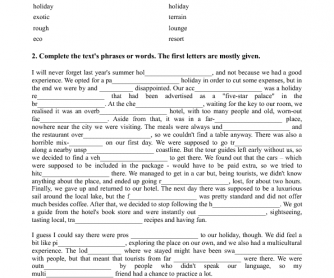
- All topics A-Z
- Grammar
- Vocabulary
- Speaking
- Reading
- Listening
- Writing
- Pronunciation
- Virtual Classroom
- Worksheets by season
- 600 Creative Writing Prompts
- Warmers, fillers & ice-breakers
- Coloring pages to print
- Flashcards
- Classroom management worksheets
- Emergency worksheets
- Revision worksheets
- Resources we recommend
- Copyright 2007-2021 пїЅ
- Submit a worksheet
- Mobile version

Exam Tourism: Why S. Korea became a hotspot for Chinese TOEFL test takers
C hinese students increasingly travel to South Korea to take English proficiency exams like IELTS and TOEFL due to a scarcity of testing facilities in China, compounded by the recent lifting of the Hallyu Ban, which has also turned these trips into opportunities for tourism.
Kim, a 27-year-old graduate student, was surprised when he went to take the International English Language Testing System (IELTS) exam last month. Half of the 20 people in the examination room appeared to be Chinese and presented red Chinese passports as identification. Before the exam started, about five or six Chinese candidates were passing around notes on English vocabulary and grammar, discussing in Chinese.
Since the lifting of the Hallyu Ban (restrictions on Korean cultural content) in China last August, there has been an increase in Chinese people coming to Korea to take English exams like IELTS or TOEFL.
The British Council, which administers IELTS, noted that they have observed a significant number of Chinese expeditionary candidates coming to Korea recently. Although they do not have statistics sorted by nationality, it is estimated that as many as half of the 30,000 people who take IELTS in Korea annually could be Chinese.
The reason behind the increasing number of Chinese citizens taking the English proficiency exam in South Korea is the lack of testing facilities in China. According to the British Council, the number of IELTS candidates in China rose from 350,000 in 2017 to 500,000 in 2023, but the number of test centers only increased from 89 to 95. In some provinces larger than the Korean Peninsula, there may only be one testing site available.
As a result, some Chinese candidates have been taking overseas exams in Vietnam and Thailand for the past three to four years. With the end of the Hallyu Ban, these candidates have now shifted their focus to Korea.
Li Chang, a 23-year-old senior student at Shandong University, traveled to Seoul in February to take the IELTS. He found that his official English test scores from China were not enough to meet his requirements for studying in the U.S.
Li was unable to take the test because the online application closed early, so a friend suggested he should take the test in South Korea instead. “I looked it up online and saw numerous reviews from Chinese students who had already visited Korea to take their tests,” he said.
According to Li, there are Chinese university students who frequently form study groups and prepare for a month or two before traveling to S. Korea. Additionally, there are educational companies in China offering package programs that combine English lessons with expeditionary testing.
After taking their exams, many Chinese candidates stay in Korea for a few more days to enjoy tourism. Zhang Wei, a 24-year-old university student from Tianjin, visited Korea in early January to take the TOEFL exam.
Zhang arrived on a Friday, took the exam the next day, and spent the remaining two days visiting places like Gyeongbokgung Palace, Insadong, and Bukchon. “When registering for the test, I debated between testing centers in Gangbuk and Gangnam. I chose the Gangbuk center because it was relatively cheaper for accommodations and had more tourist attractions,” Zhang said.
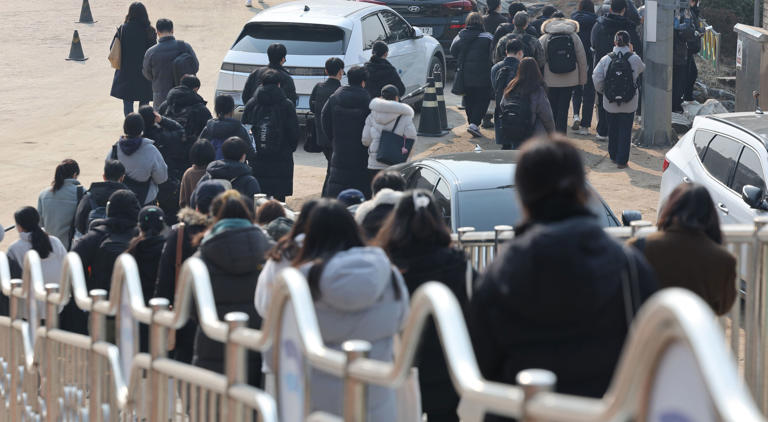
- Newsletters
- Account Activating this button will toggle the display of additional content Account Sign out
Think you’re pretty smart? Prove it with our daily quiz.
Make it a habit get the slate quiz in your inbox every weekday..
Thanks for signing up! You can manage your newsletter subscriptions at any time.
You wanted more quizzes, and we’ve delivered! Now you can test your wits every day of the week. Each weekday, your host, Ray Hamel, concocts a challenging set of unique questions on a specific topic. At the end of the quiz, you’ll be able to compare your score with that of the average contestant, and Slate Plus members can see how they stack up on our leaderboard. Share your score with friends and compete to see who’s the brainiest.
Today’s topic is vocabulary. Can you ace the quiz and beat the average? Good luck!
If this is your first time playing, read the rules here . The quiz may require you to turn on cookies in your browser for it to function properly.
Please enable Javascript in your browser to view Slate interactives.
More Games From Slate
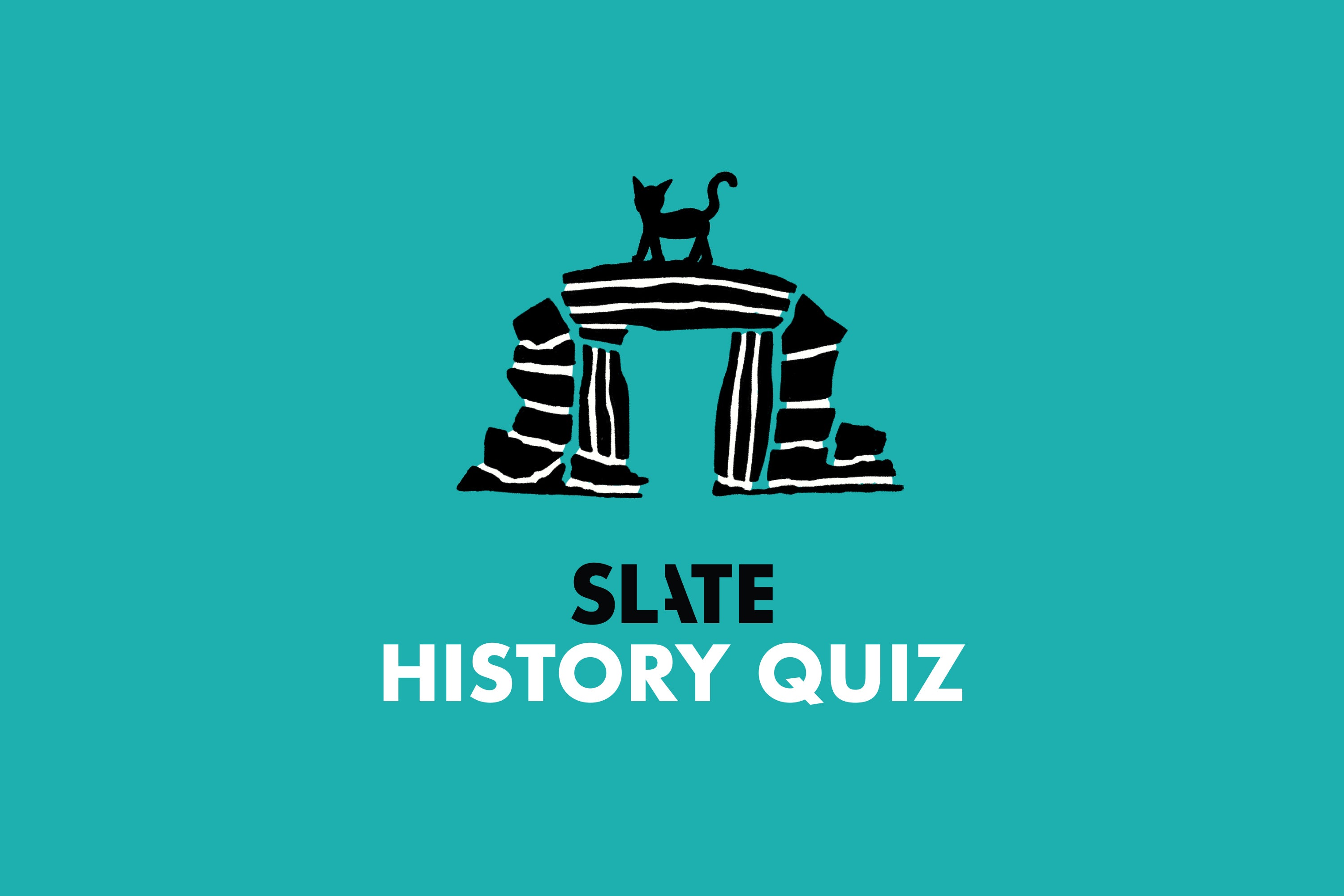
- Slate Games

IMAGES
VIDEO
COMMENTS
Tourism. In this pre-advanced vocabulary lesson about Tourism, you will learn about common places to visit, verbs and idioms related to travel, and adjectives to describe different types of places. Check the explanation to familiarize yourself with the expressions before doing the exercises. Exercise 1 Choose the correct option for each gap.
Complete tourism English courses on Memrise. Focus on Memrise English courses for tourism. These lessons feature English vocabulary words and phrases that anyone in the tourism industry would use in their daily activities. Try spending at least 30 minutes a day using Memrise to brush up on your tourism vocabulary—you'll notice a difference!
IELTS Vocab. Considering that tourism is one of the biggest industries in the world, questions about tourism are common on the IELTS examination. You may be asked about trips you have taken or the wider impact of different types of tourism. Therefore, it is essential that you know and understands a range of words and phrases used to discuss ...
1. Travel Vocabulary. Attraction - A place that entices visitors because it is interesting. Backpacking - To travel, often to more than one destination, with your belongings in a backpack. Camping - A holiday spent in a tent or camper van. Cruise - A sea-based trip taking a pre-planned route that involves visiting several ports.
Travel and Tourism Vocabulary for IELTS. This travel and tourism vocabulary for IELTS will help you with any speaking questions that may come up around this topic or essays related to it. You may know some of the words, but you can see examples of them in context which will help you know how to use them correctly.
One of the common IELTS topics that appears in the exam is that of travel and tourism. In today's lesson, I will help you learn about this topic so that you can do well in your next test. First we will look at a little vocabulary about travel and tourism, then we will explore some IELTS speaking and writing questions to give you an idea of ...
Tourism Vocabulary IELTS. The IELTS Vocabulary is one of the most scoring sections of the IELTS test. Candidates preparing for their IELTS test must practice efficiently to score a higher band on the test. The best way to improve your tourism vocabulary in IELTS is to practice all the words related to tourism and their meaning.
English For Tourism Workers. Learn the most useful English expressions, phrases, idioms and other vocabulary words to assist people in a hotel, airport, restaurant or on a tour. You can improve your confidence to be able to speak English to your guests. Impress your boss and maybe even get a better job because of your language skills!
To get away : To escape, to go somewhere that is not your home. You can also use the noun "a getaway.". Example: Last week, I had a great chance to get away from the hustle and bustle of the city to visit an ancient village in the countryside. A thirst for adventure: strong desire for travelling/adventure. Get itchy feet: have a strong ...
IELTS Topic Related Vocabulary: Tourism - Word Lists, Collocation, Idioms 1. To swarm with tourists Meaning: when people swarm somewhere, they move there in a large group or in large numbers. Example: During the summer, the little seaside town is swarming with holiday makers. 2. To be thronged with tourists Meaning: refers to the situation
Home » IELTS speaking » IELTS vocabulary about Travel and Places. Passing the IELTS speaking test with a good grade will depend on your ability to answer the questions using appropriate vocabulary in the correct context.. Collocations are words that naturally combine to form a phrase.. These words when used in combination make the English speaker sound more fluent and natural.
Here is the list of Academic English words in this Study Set related 'tourism'. . 'Fill-in-the-Blank' questions in the IELTS Listening test have used many of these words. So, you need to know how to spell them. These are also useful words for any academic passage related to 'tourism', 'travel', 'history', or 'cities'! Tourism vocabulary
something interesting or enjoyable that people want to visit. Castle. Noun. a large building usually with high, thick walls and towers that was built in the past to protect against attack. Exhibition. Noun. a public show of something. What a great view!
B2 Listening: Tourism. A teacher is giving a lesson on the effects of tourism. 1 According to the teacher, tourism damages the things that tourists come to see. 2 Most people who visited Goa before 1986 were poor. 3 Before 1986, about 250,000 foreign tourists visited Goa per year. 4 From 1986, there was an increase in package holidays to Goa.
Tourist destinations. 0.0(0 votes) IELTS Vocabulary. 708. 07/24/2023. Below is a detailed list of vocabulary related to "Tourist destinations" suitable for IELTS band 6.5-8.0: Tourist Destination: Definition: A place that attracts visitors from other regions or countries for leisure, recreation, or cultural experiences.
Tourist - a person who travels for pleasure. Attractions - places of interest visited by tourists, including landmarks, museums, theme parks, etc. Guide - someone who provides information and assistance to tourists during their journeys. Souvenir - a memento or keepsake people buy to remember their trip.
Tourism. In this pre-advanced vocabulary lesson about Tourism, you will learn about common places to visit, verbs and idioms related to travel, and adjectives to describe different types of places. Check the pictures below and read the definitions and sentence examples to enhance your tourism-related vocabulary.
1,020. 07/24/2023. Below is a detailed list of vocabulary related to "Sustainable tourism" suitable for IELTS band 6.5-8.0: Sustainable Tourism: Definition: Tourism that aims to have a positive impact on the environment, society, and economy of a destination, while preserving its cultural and natural resources for future generations. Ecotourism:
Tourist places are a must-visit for several reasons: (Travel and Tourism Vocabulary) They offer a glimpse into the culture, history, and traditions of a place, providing a unique and immersive travel experience. They provide opportunities for adventure, whether it's exploring natural wonders, trying new foods, or engaging in local activities.
It was created as a test for a chapter of a certain book so it may be a bit specific, but it still deals with collocations, phrases, idioms and vocabulary items related to tourism and can be used to expand basic vocabulary on the theme or test previous knowledge. It consists of a matching exercise and a text with gaps to be filled. This is a ...
In addition, 138 Japanese pre-intermediate English language learners responded very favorably to the recall-focused practice and assessment method in a post-semester survey. The findings show that test items for vocabulary tests should change from multiple choice to recall test items to promote a deeper knowledge of high frequency words.
After taking their exams, many Chinese candidates stay in Korea for a few more days to enjoy tourism. Zhang Wei, a 24-year-old university student from Tianjin, visited Korea in early January to ...
Now you can test your wits every day of the week. Each weekday, your host, Ray Hamel, concocts a challenging set of unique questions on a specific topic. At the end of the quiz, you'll be able ...